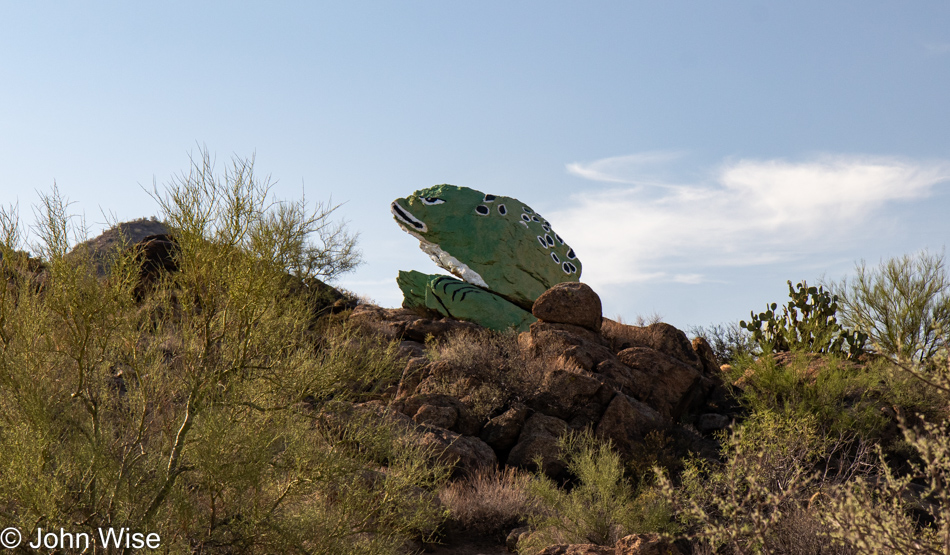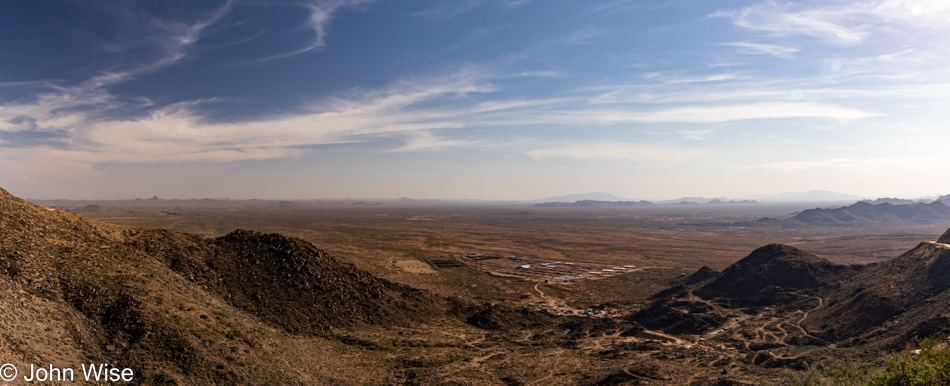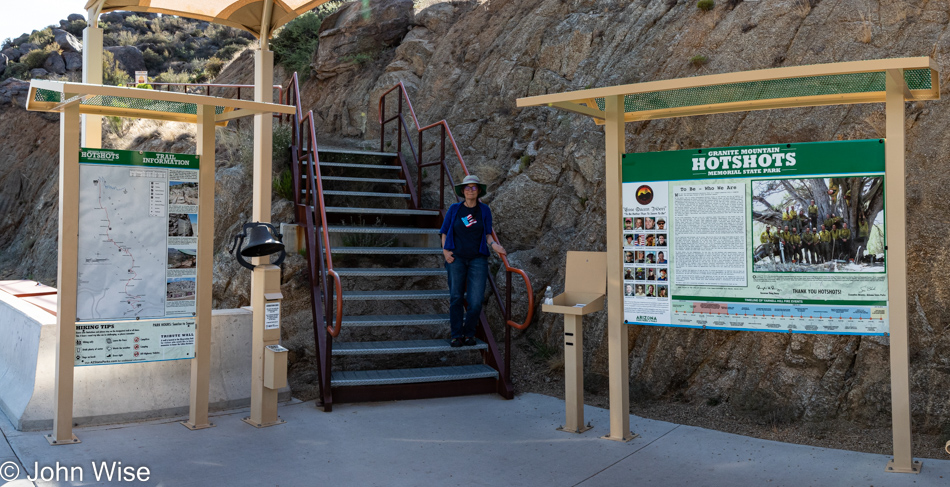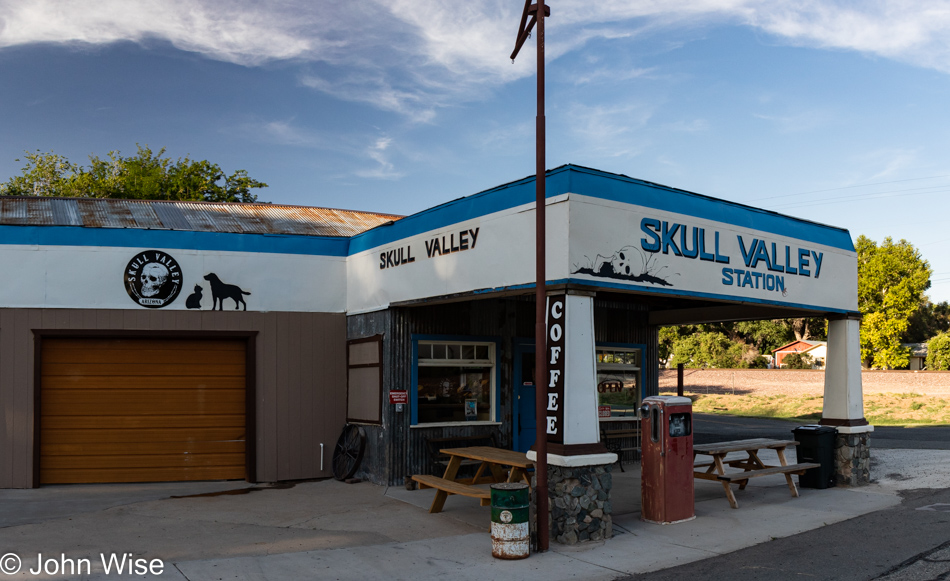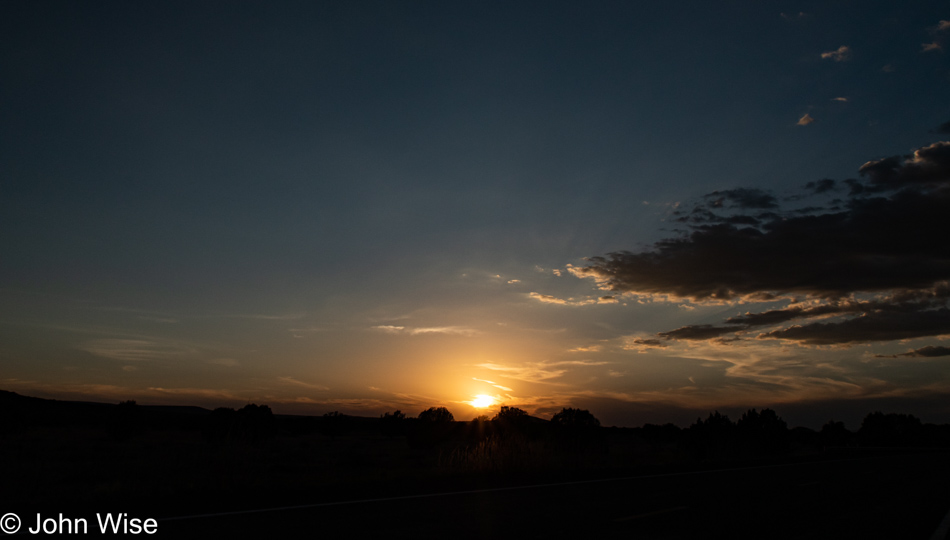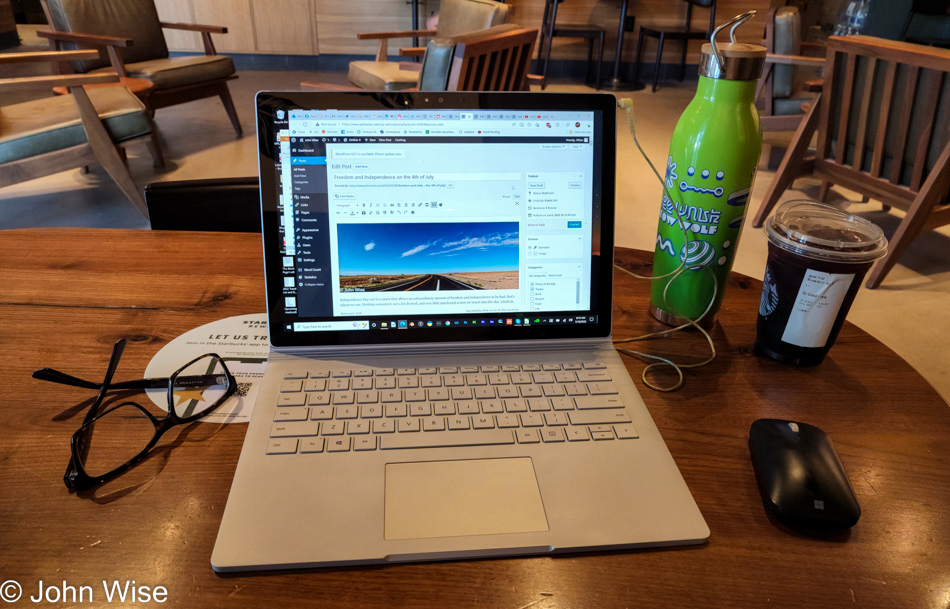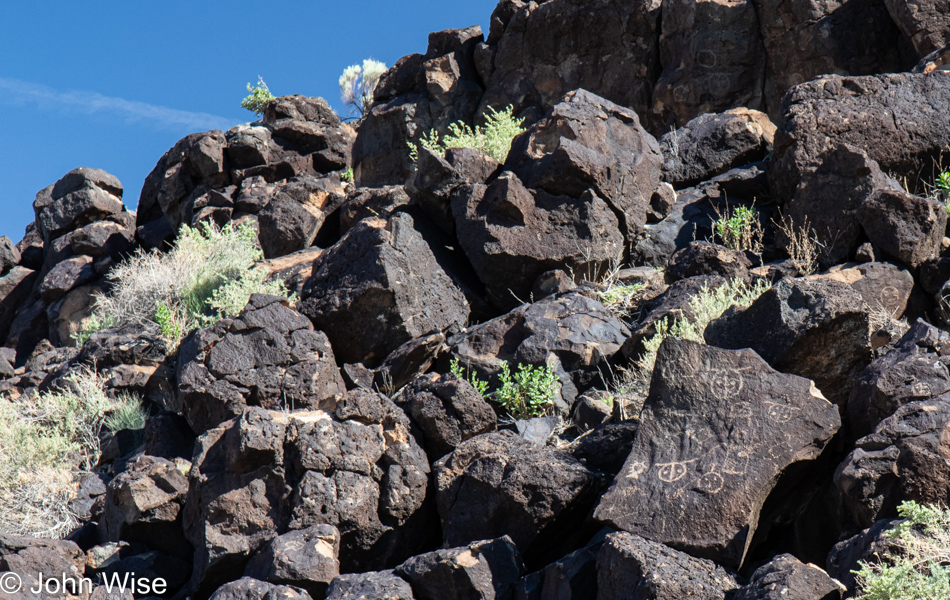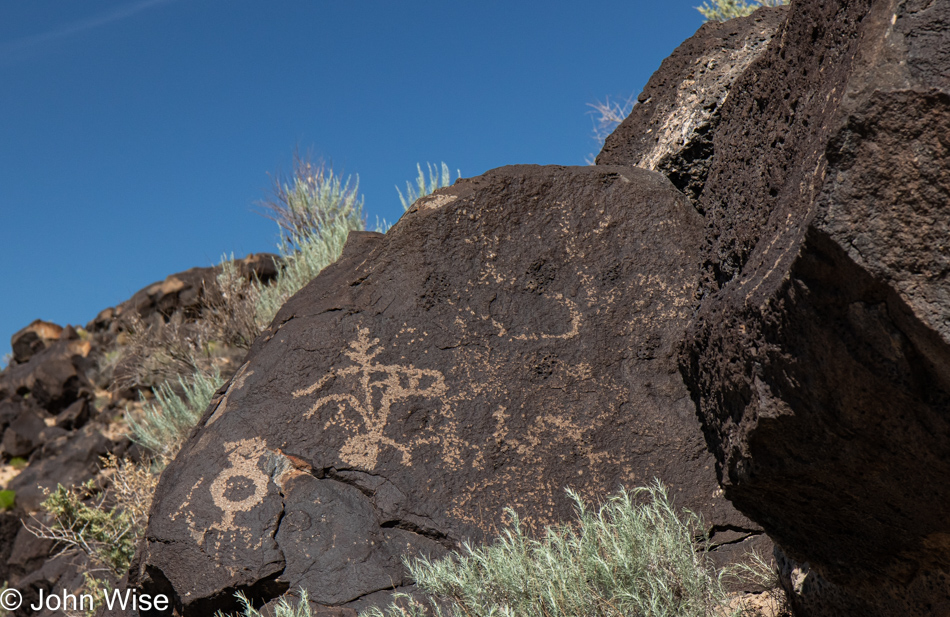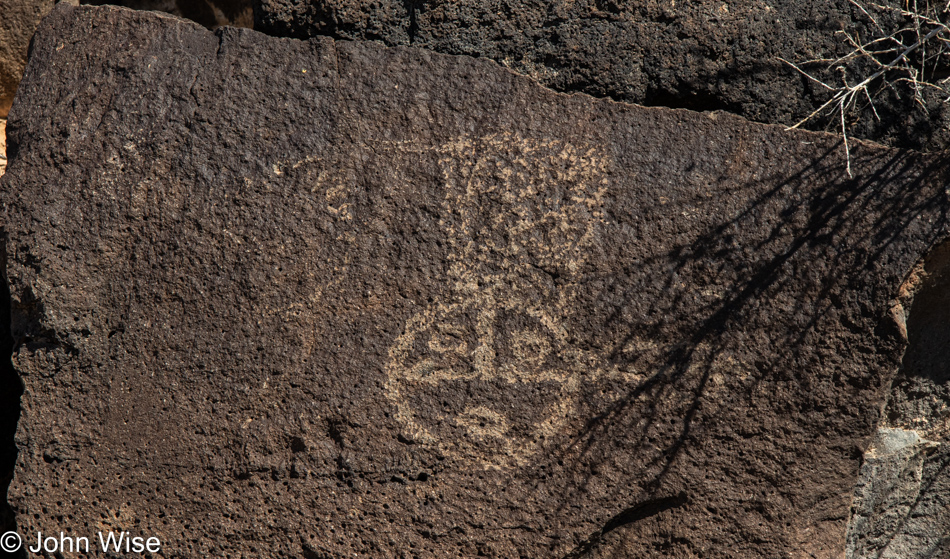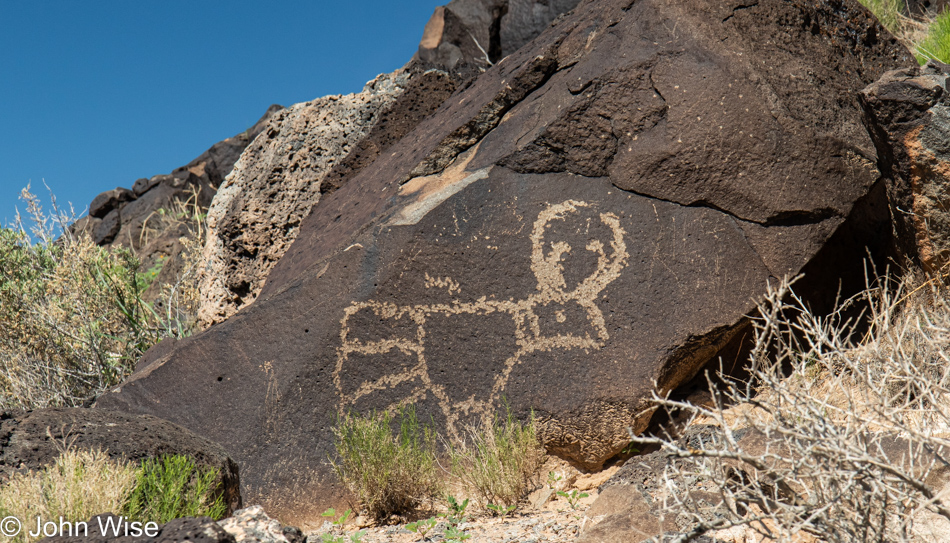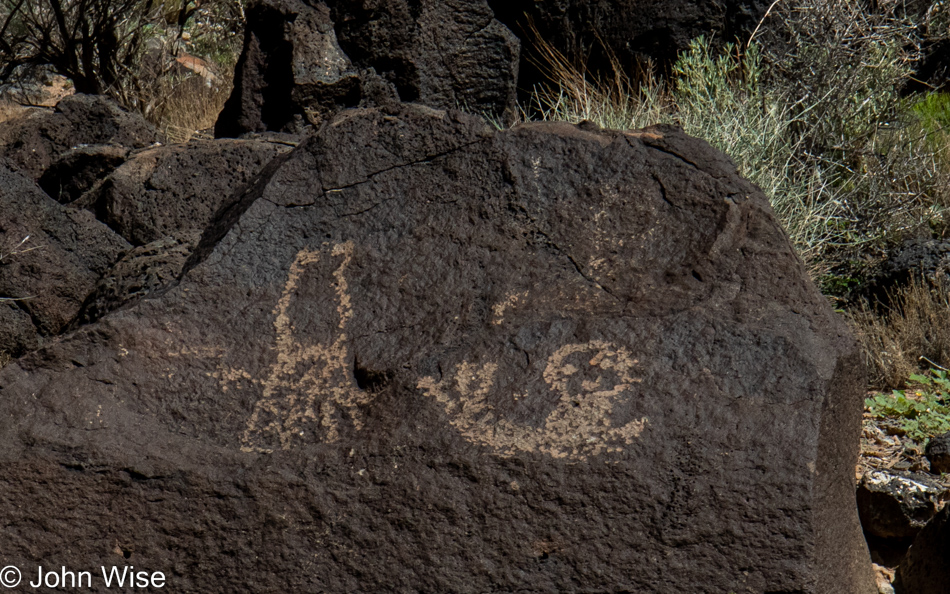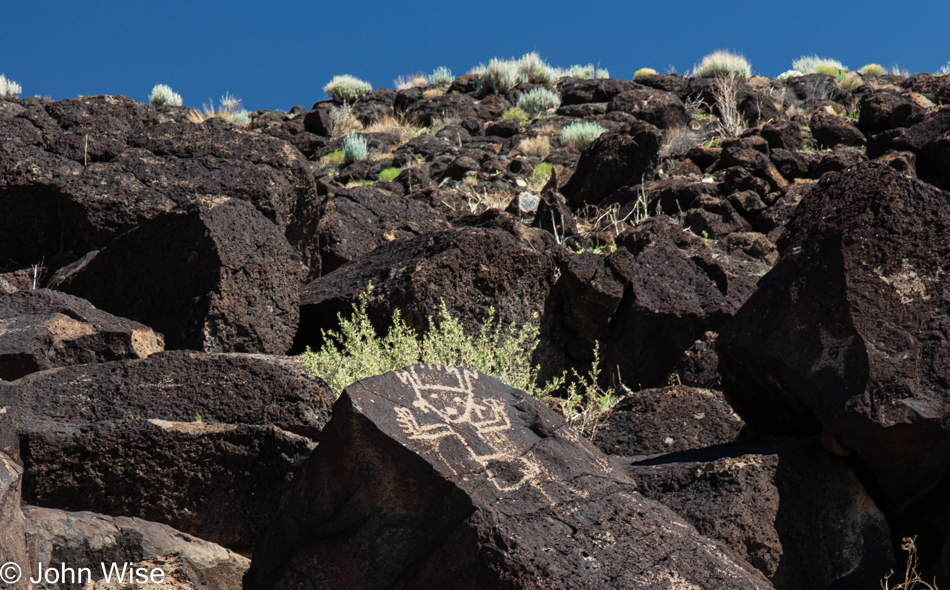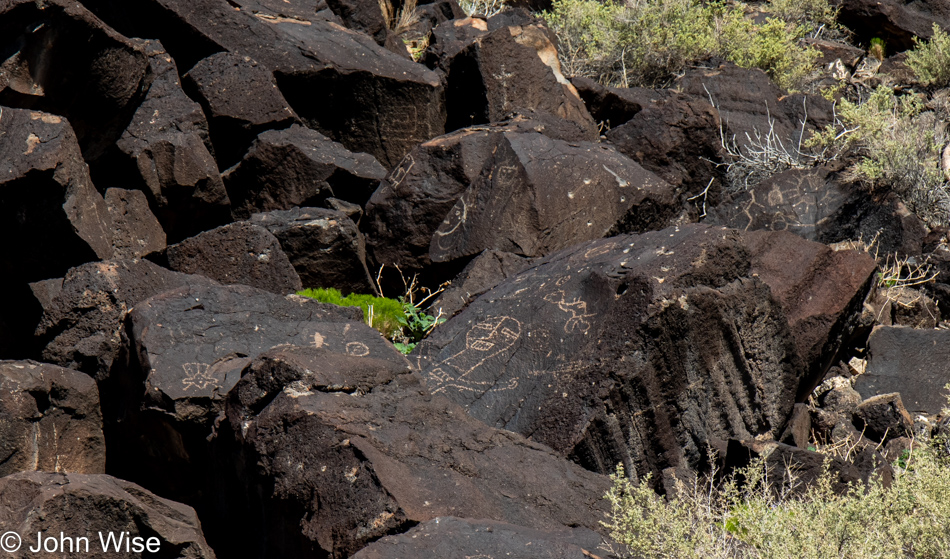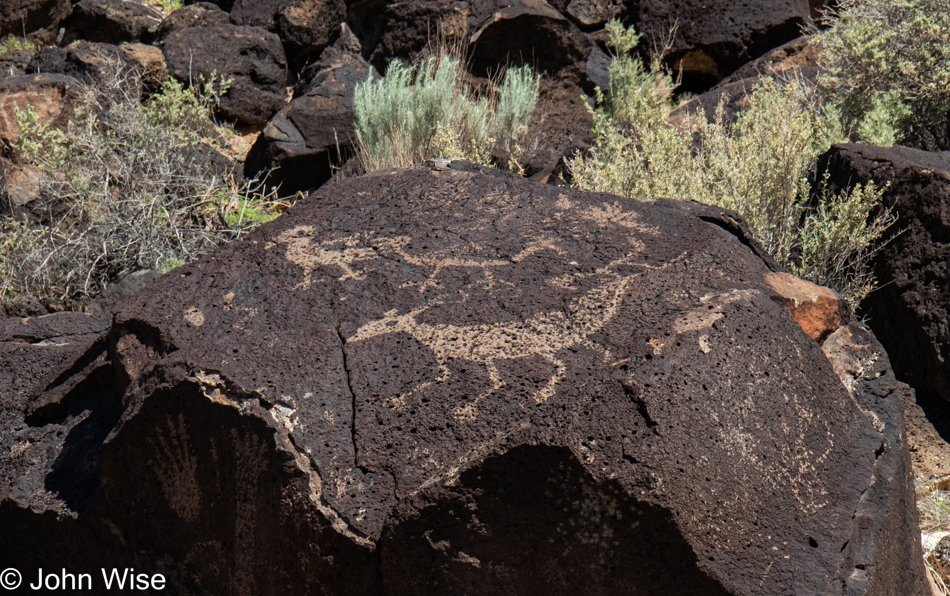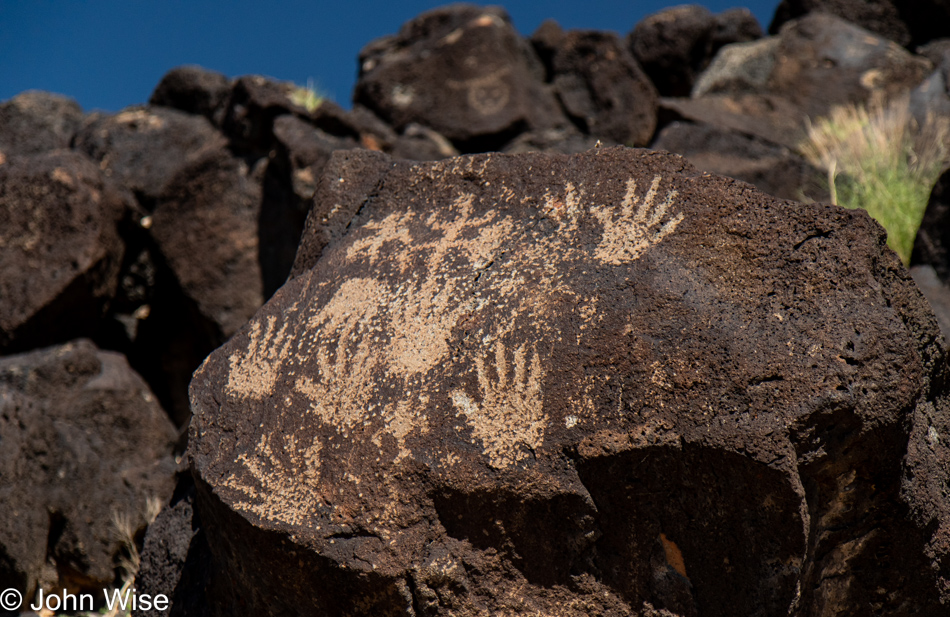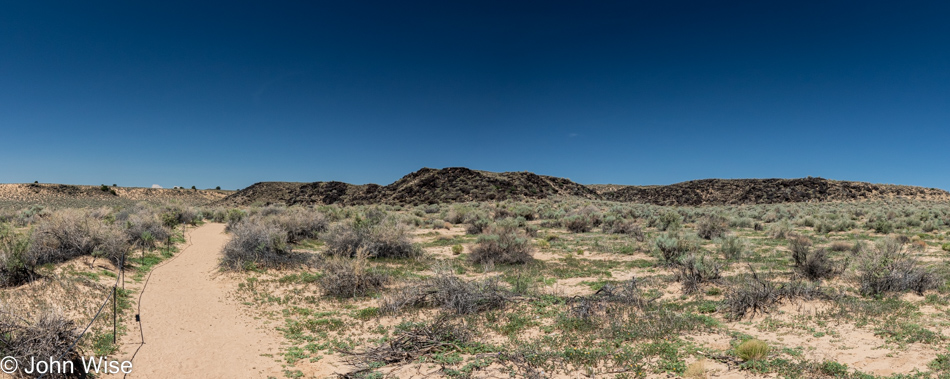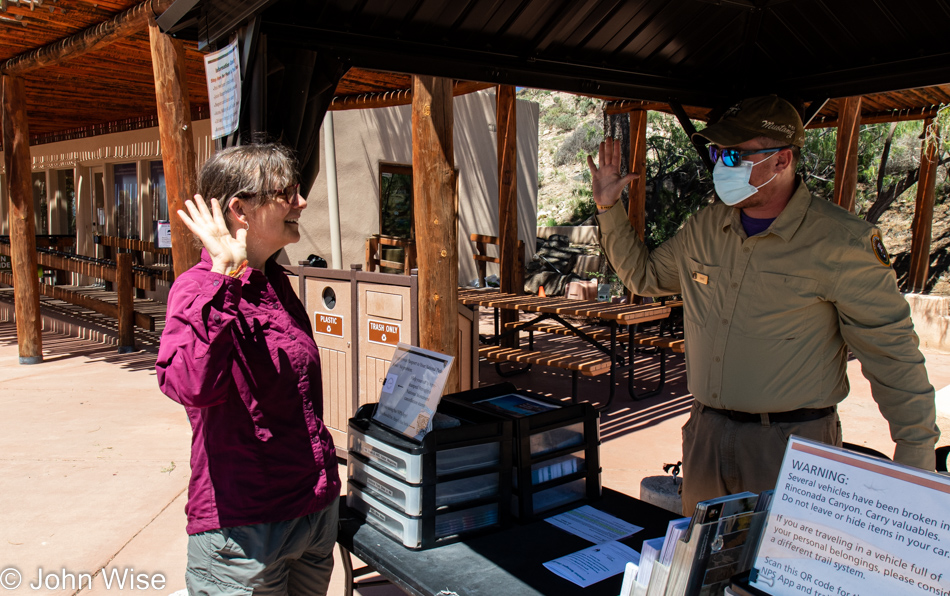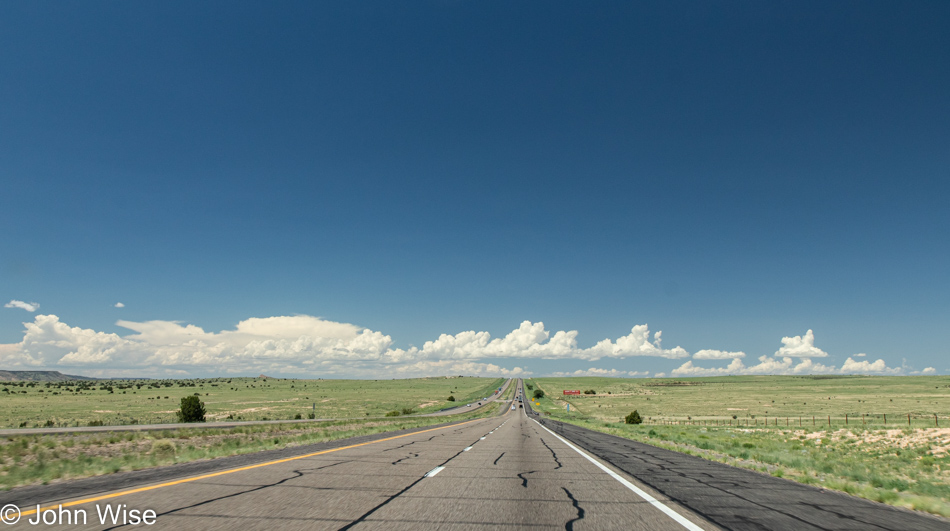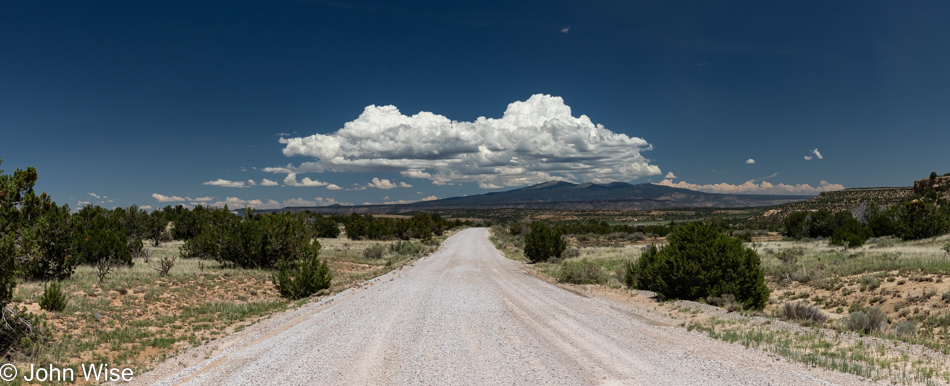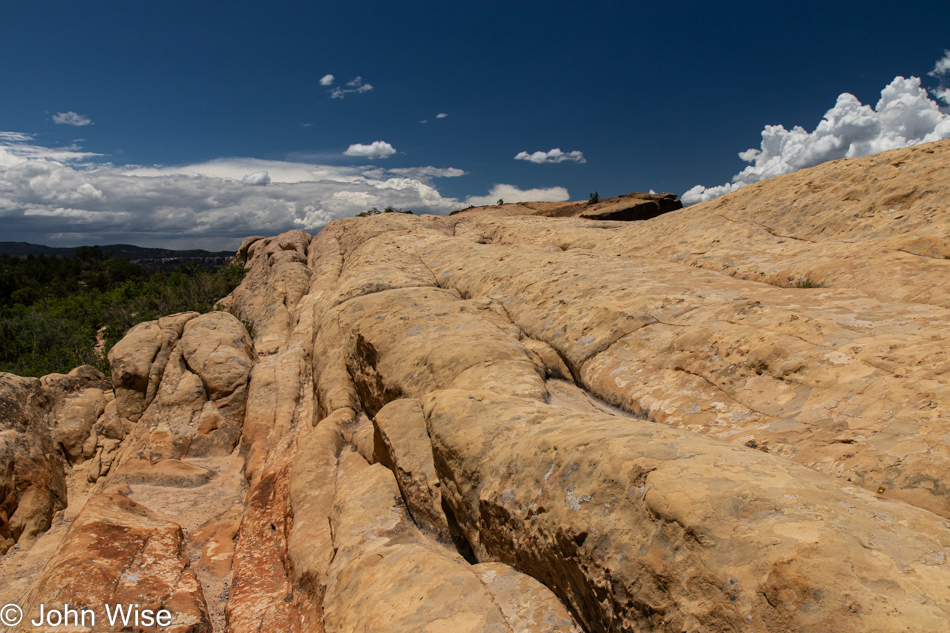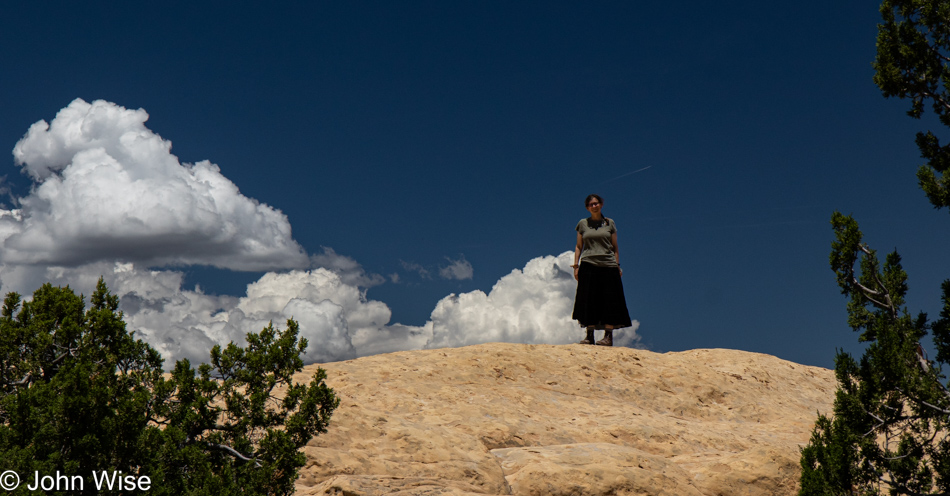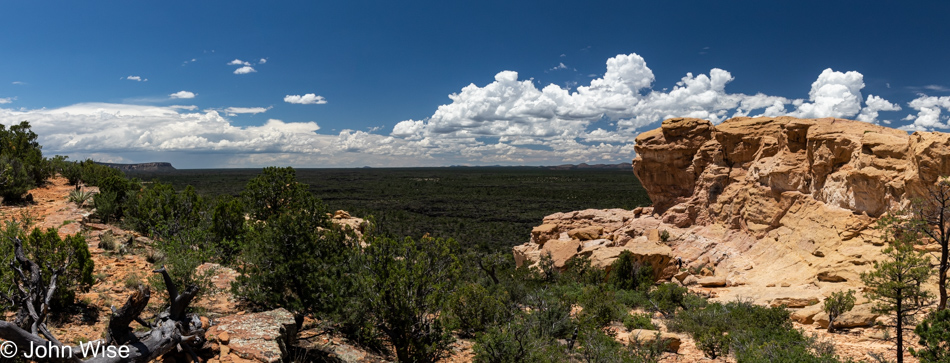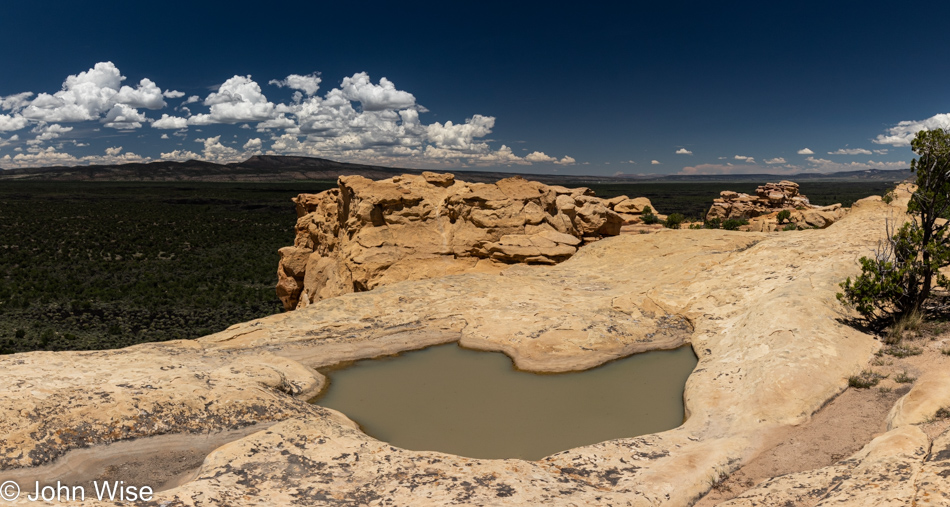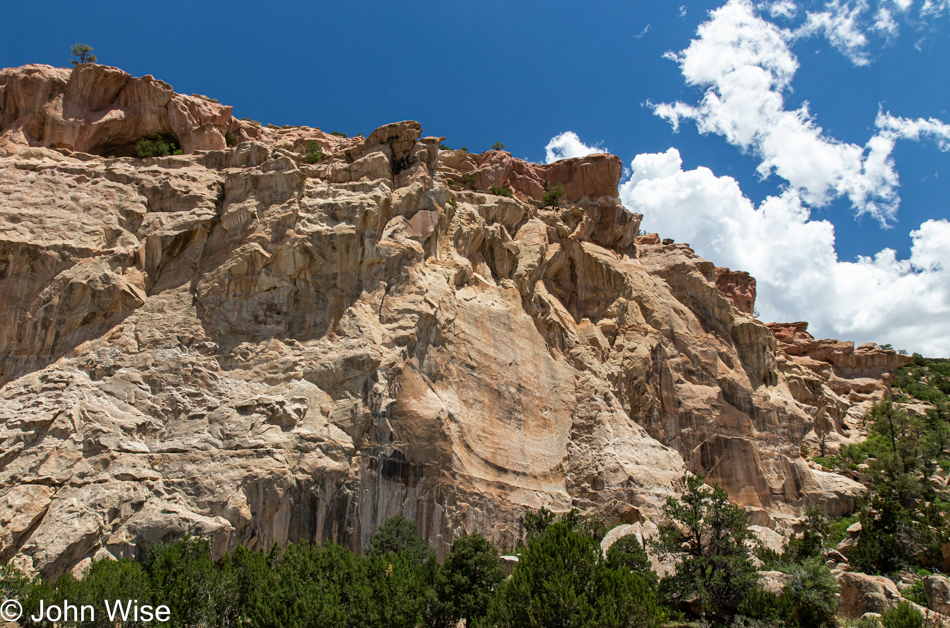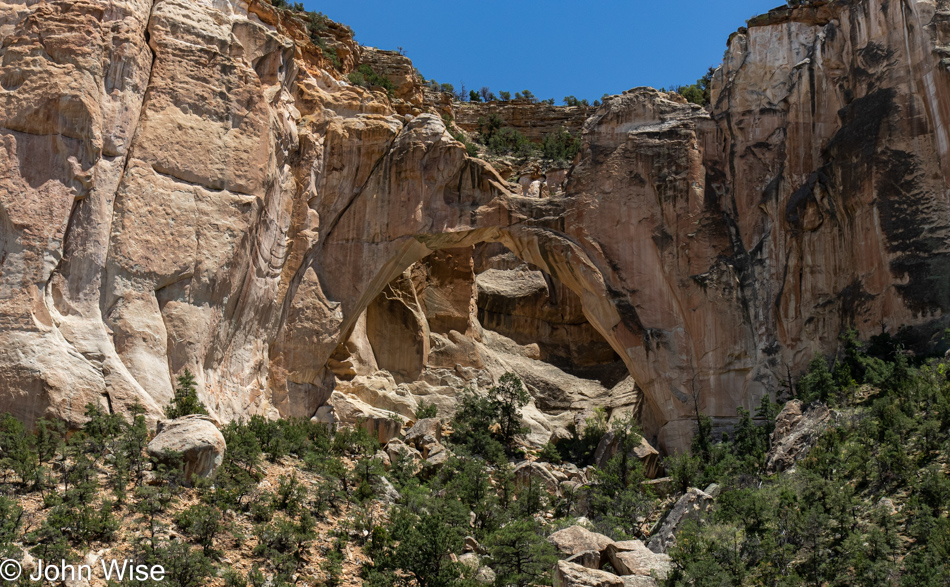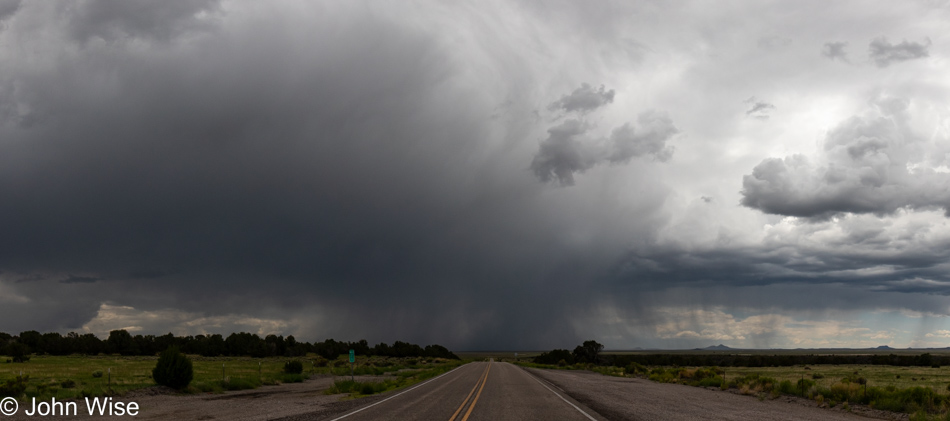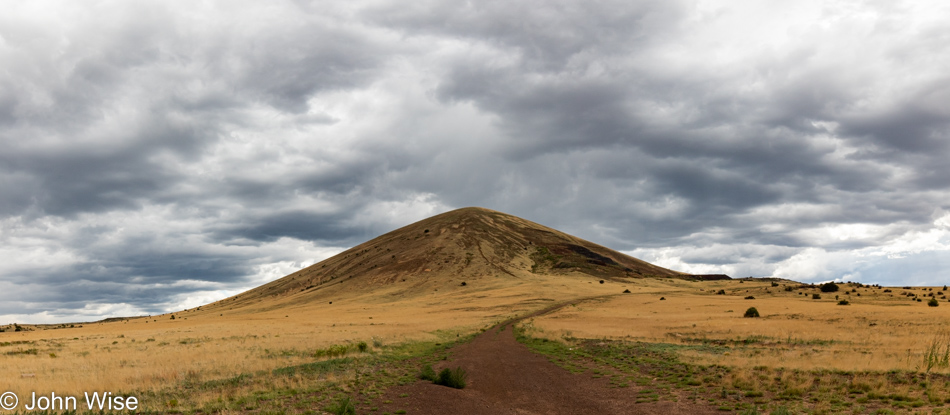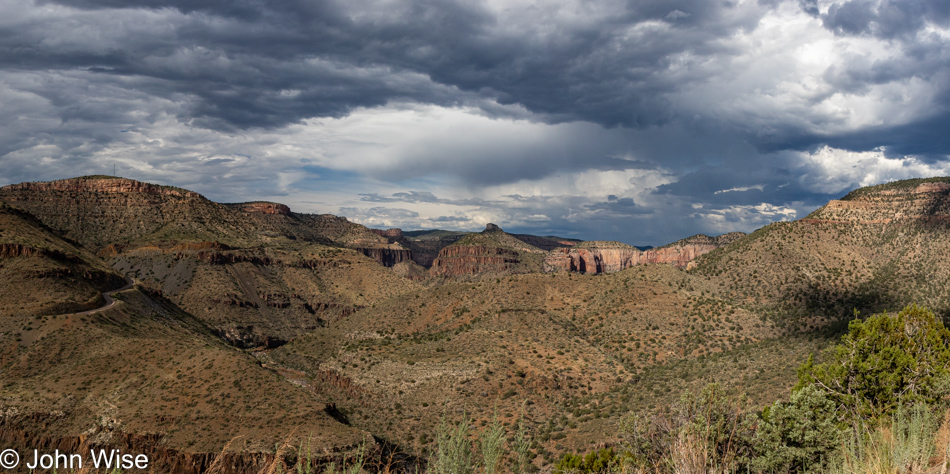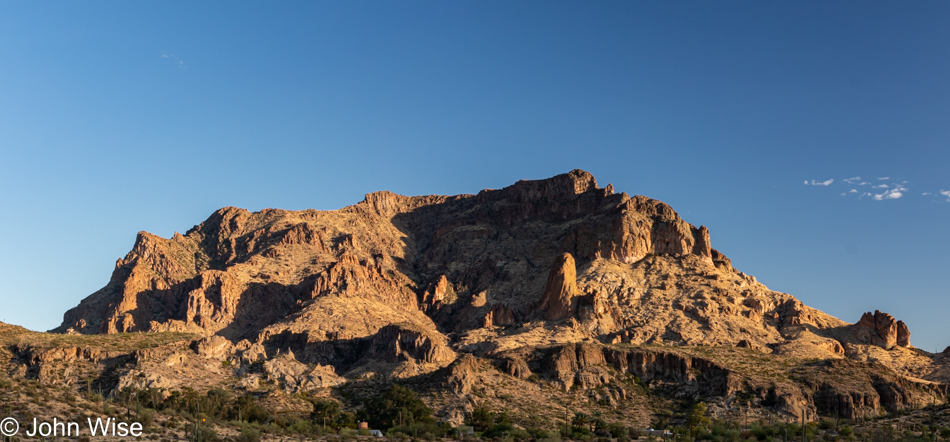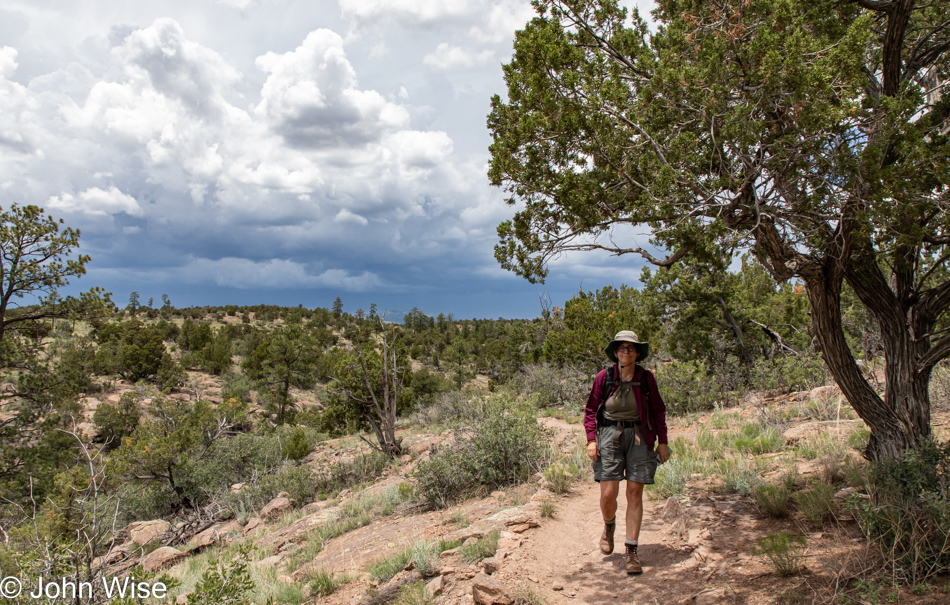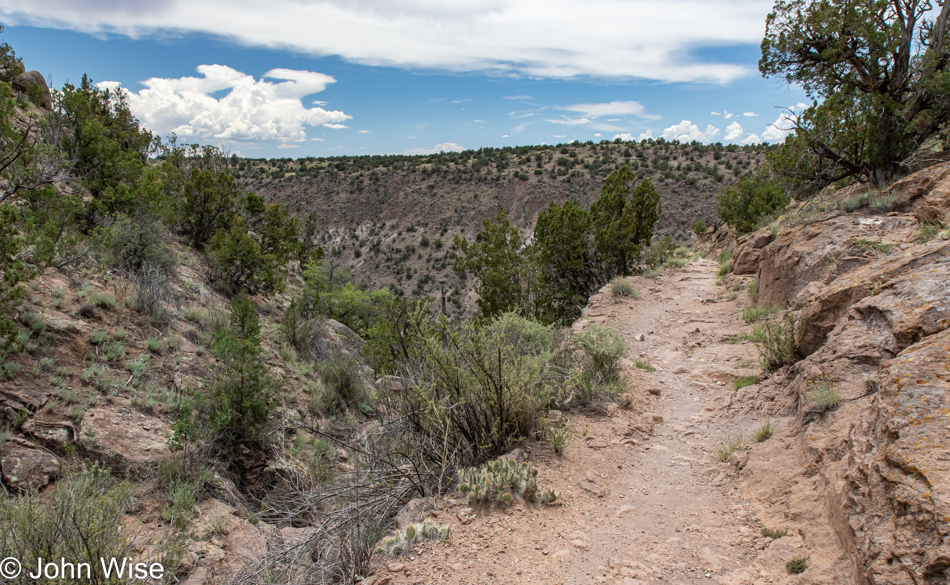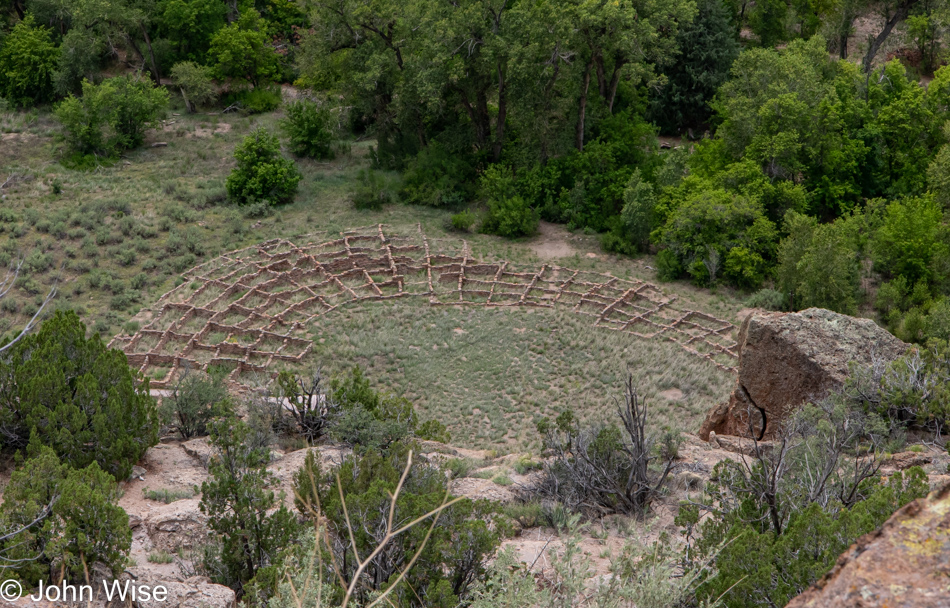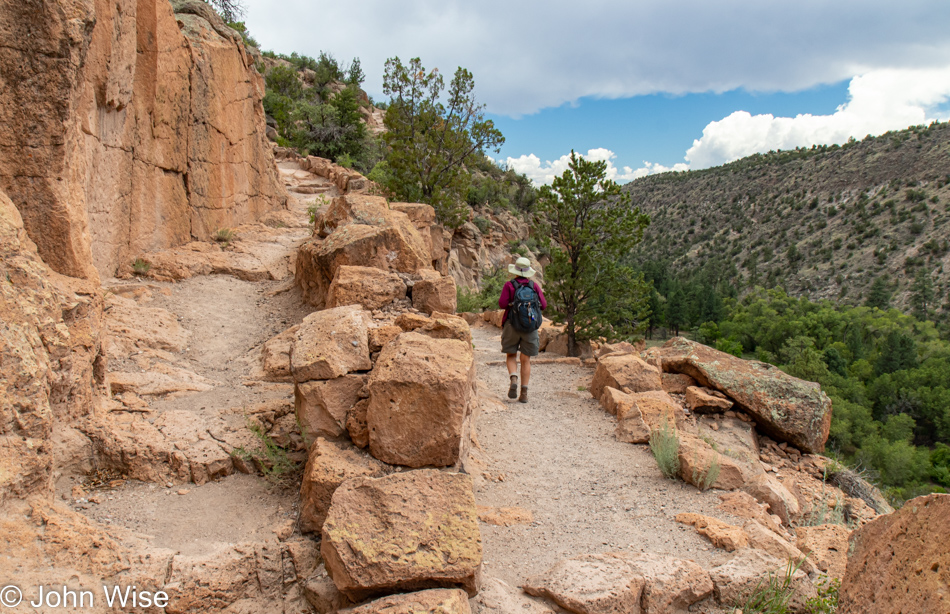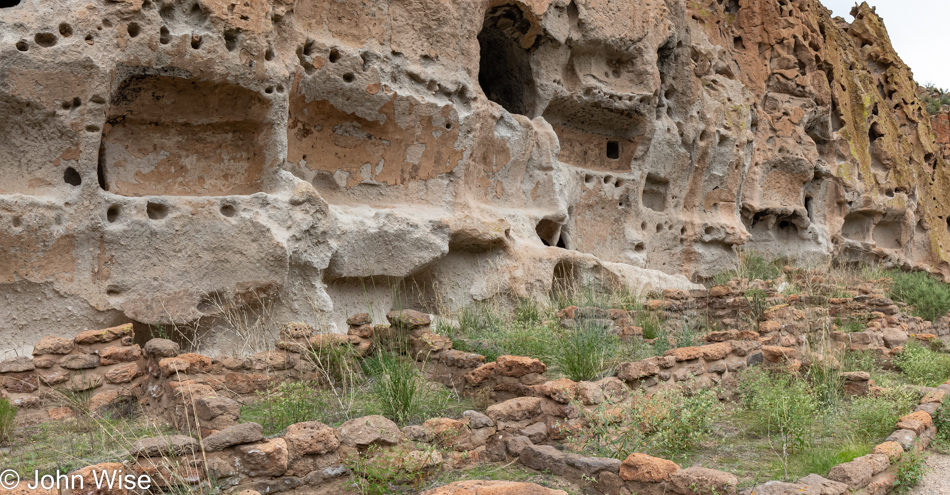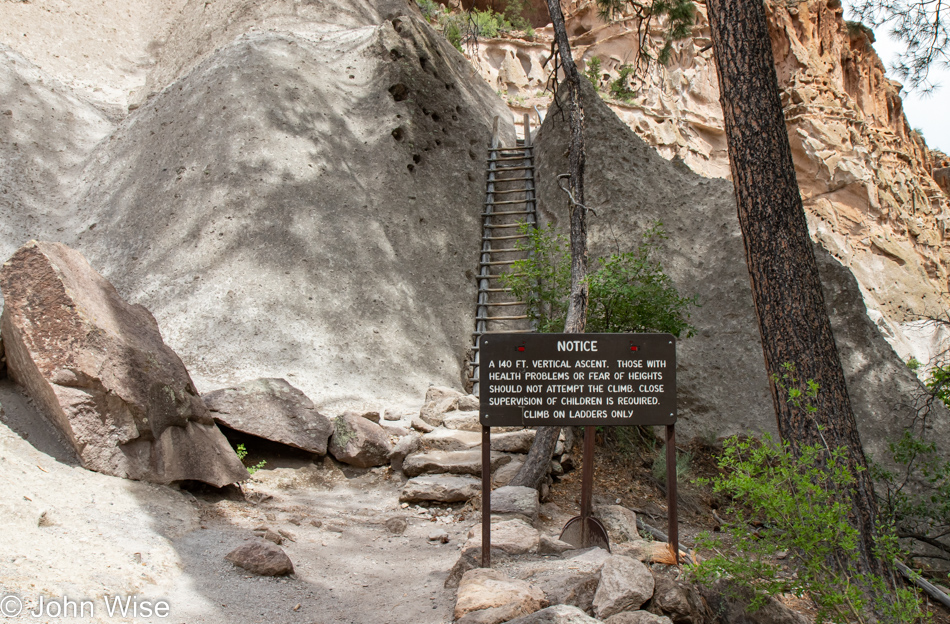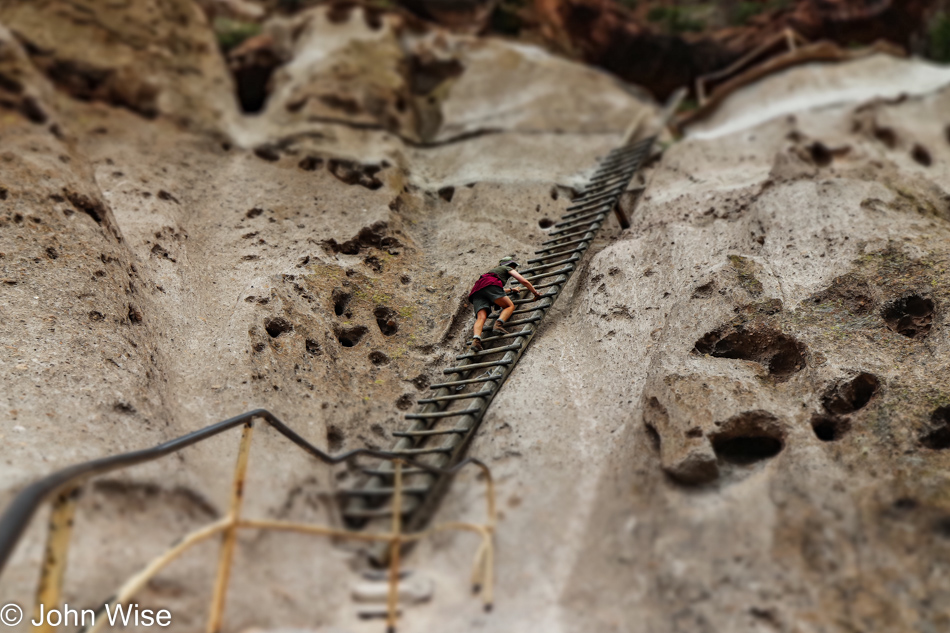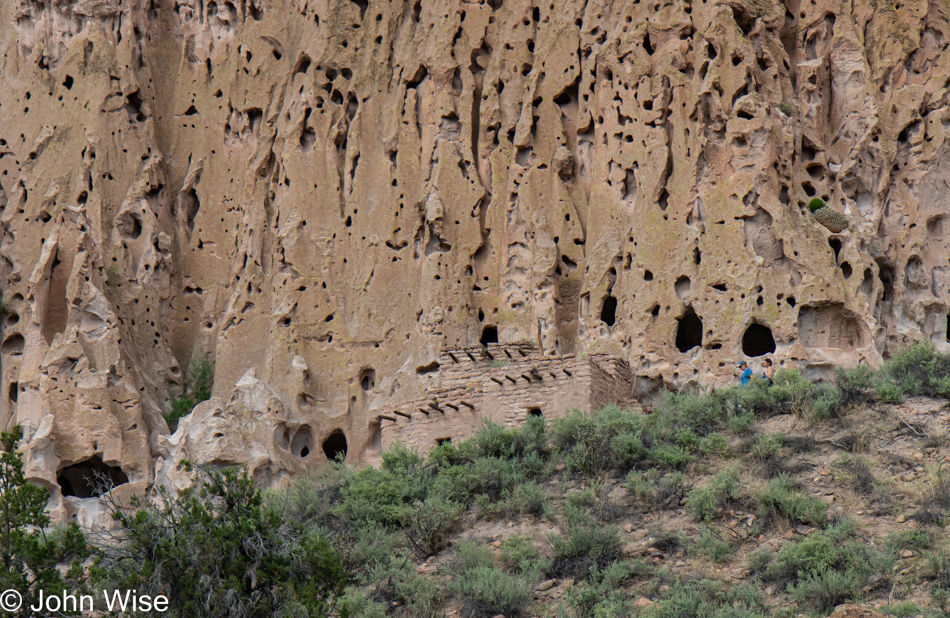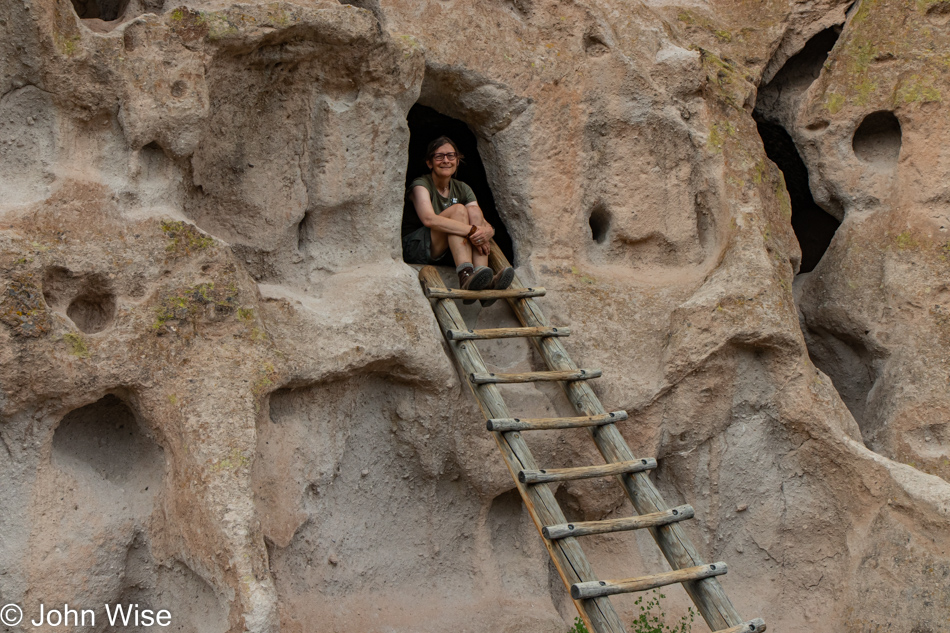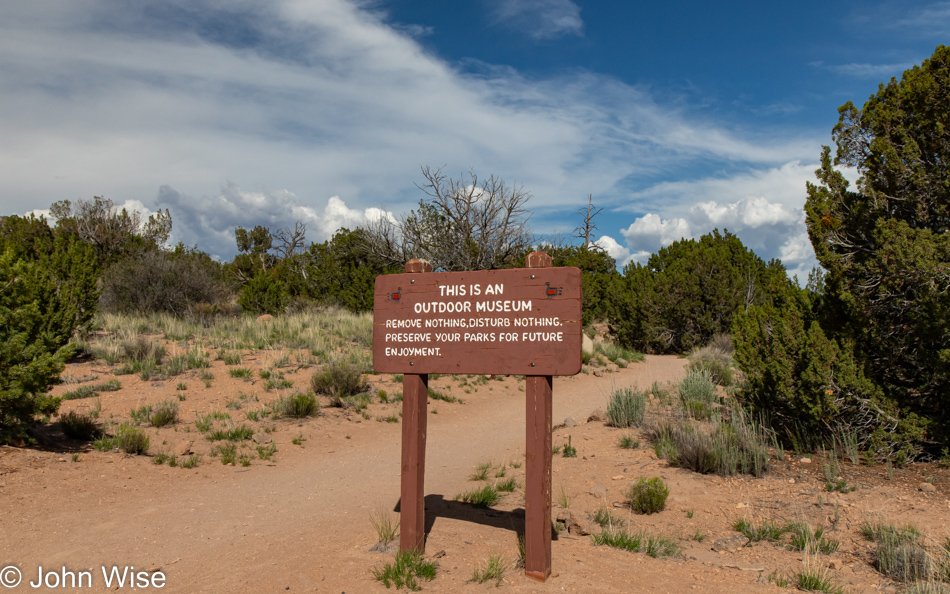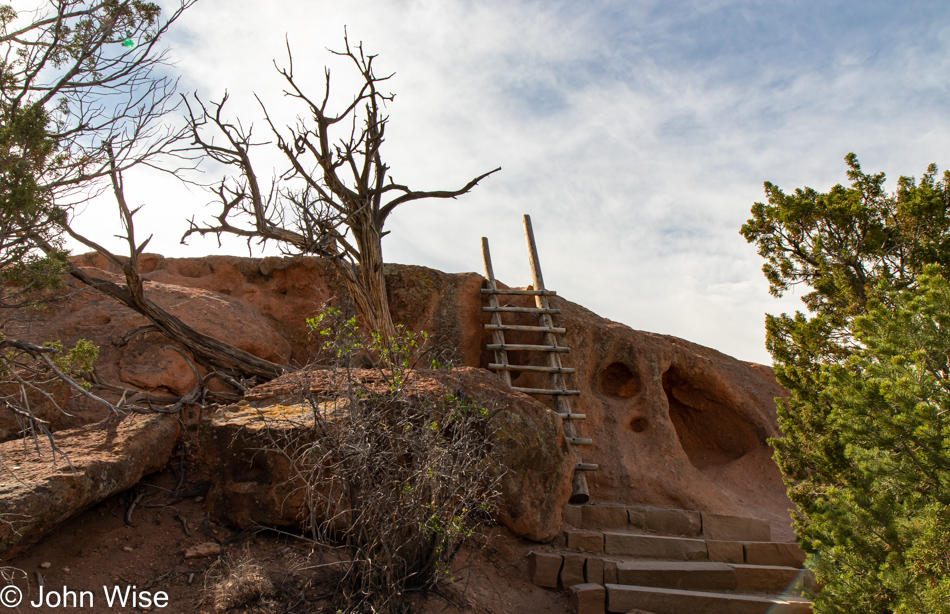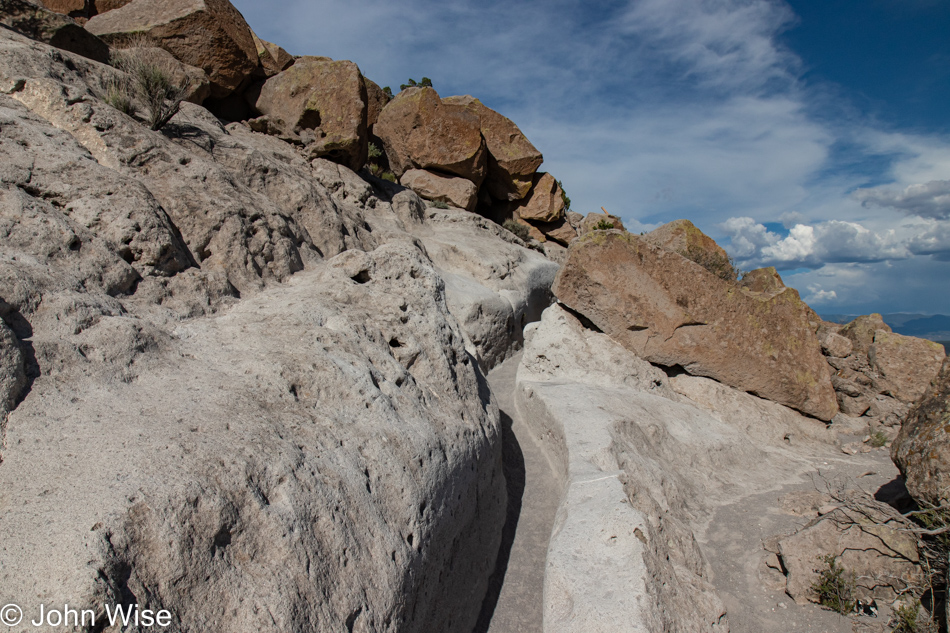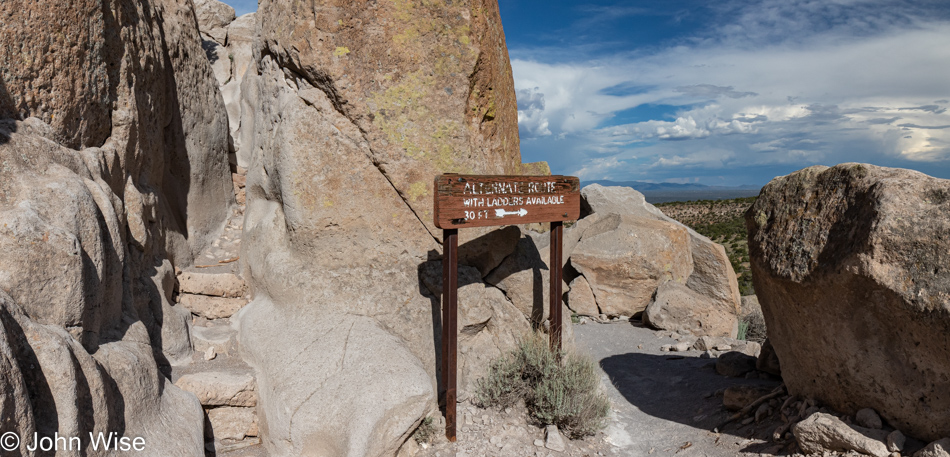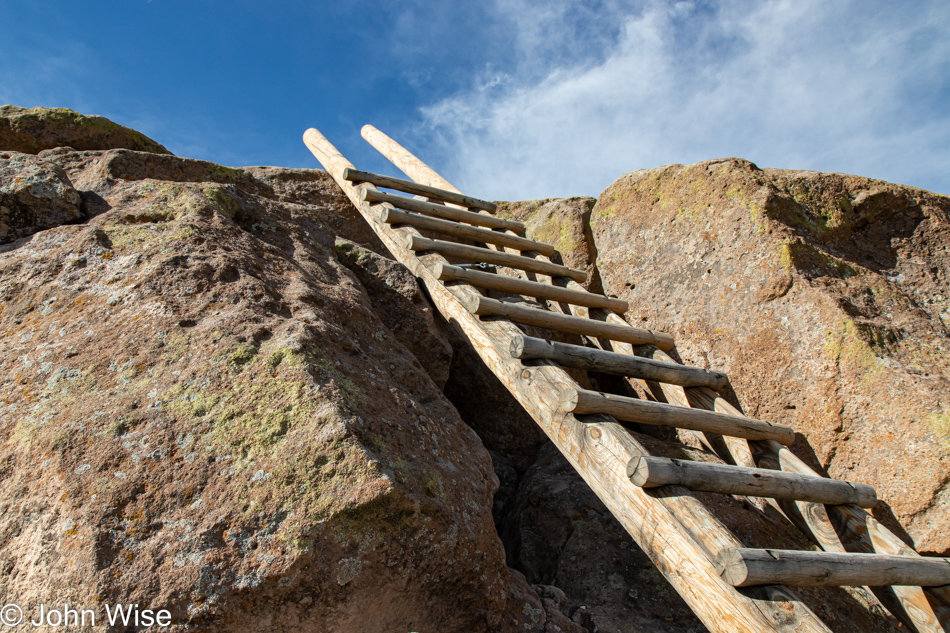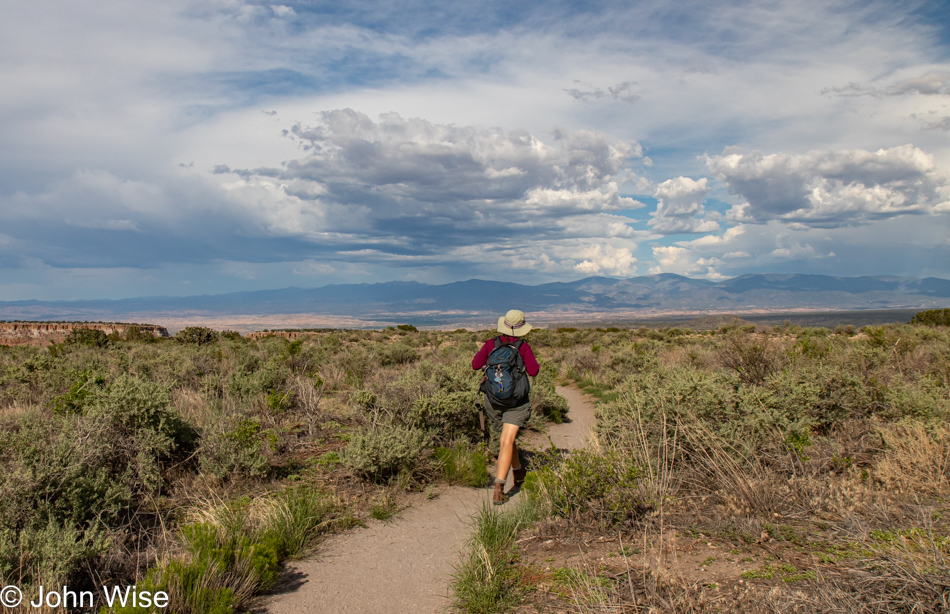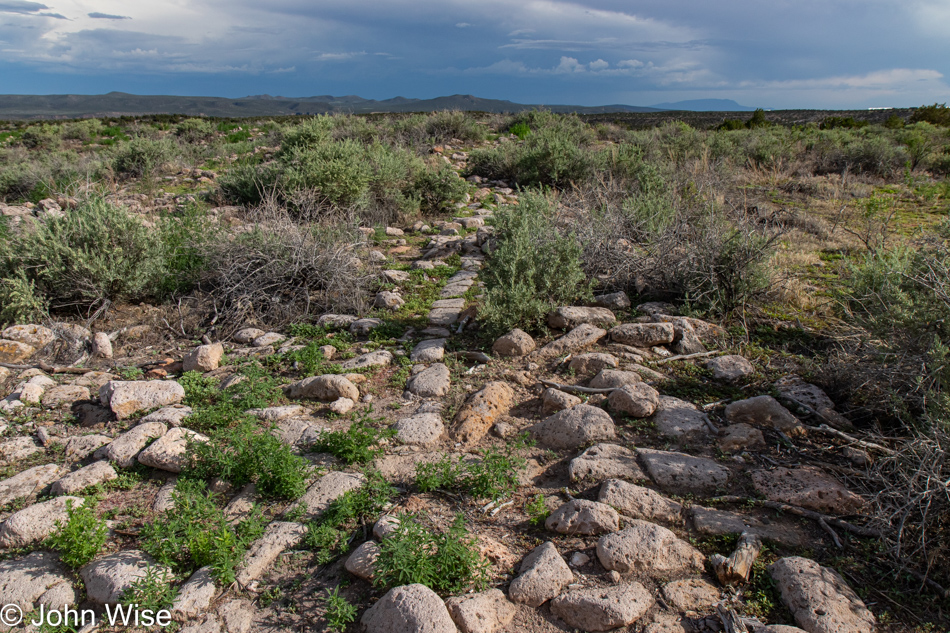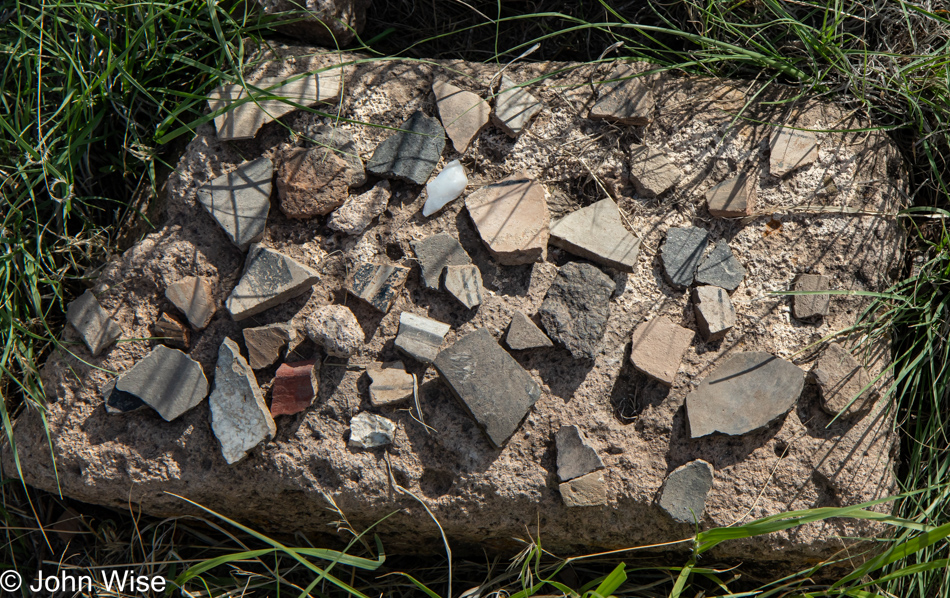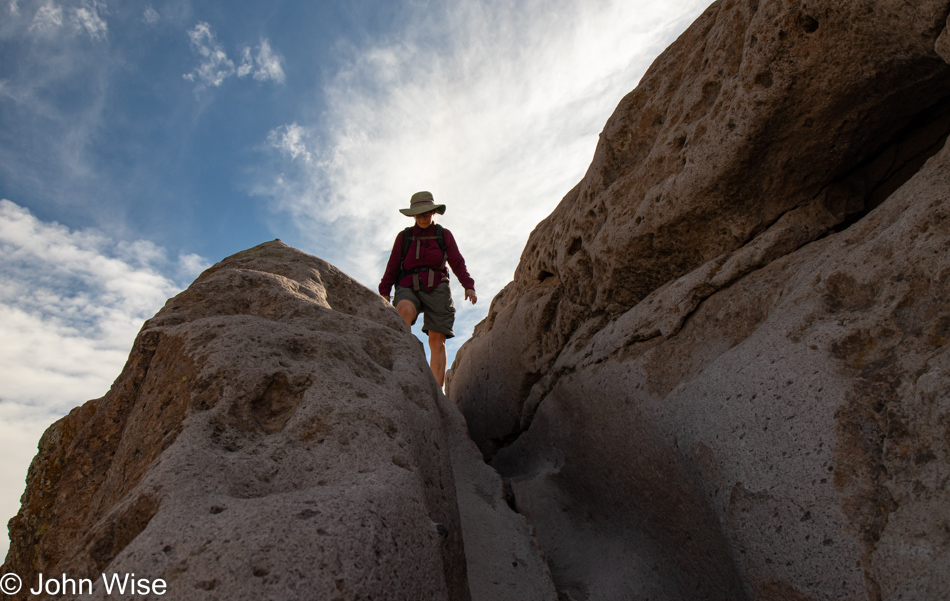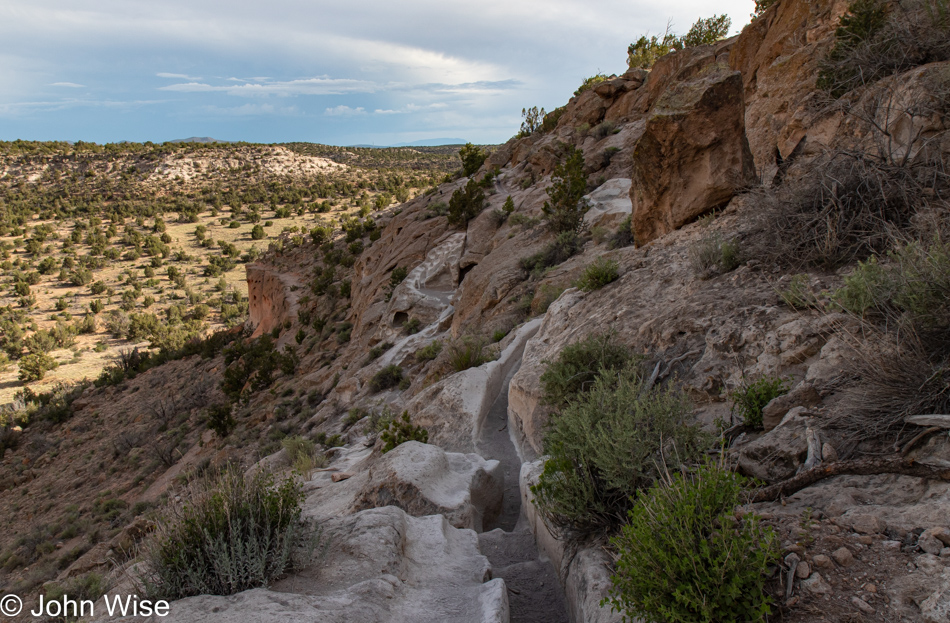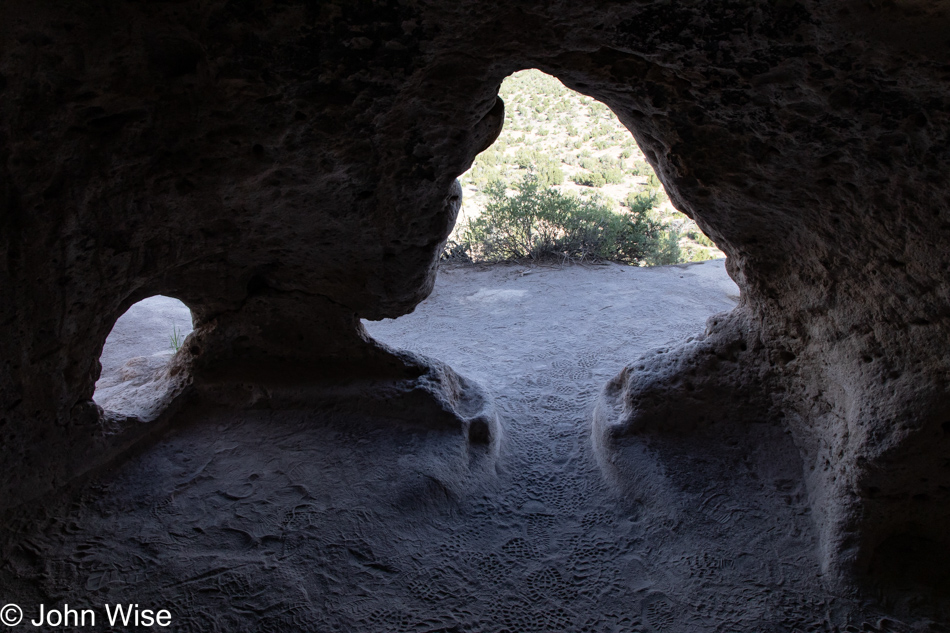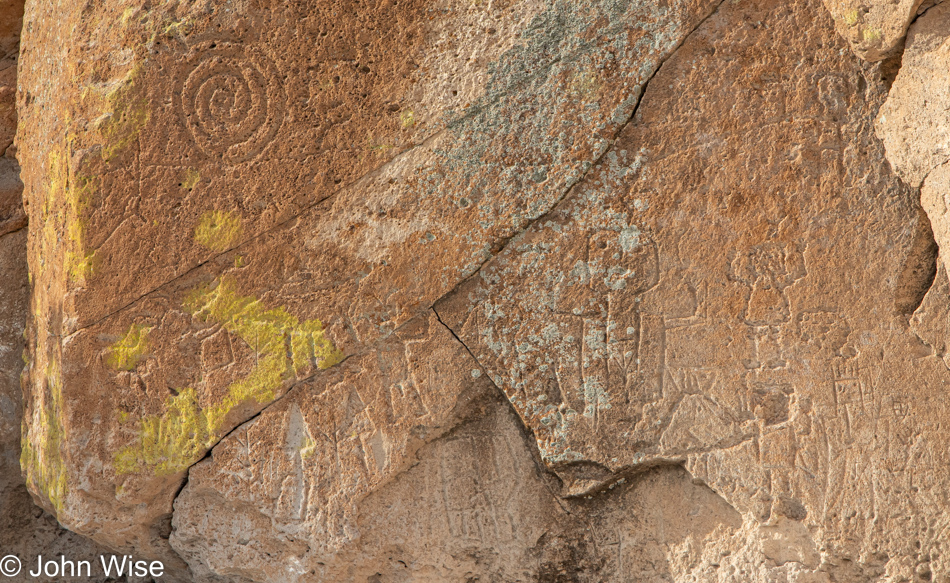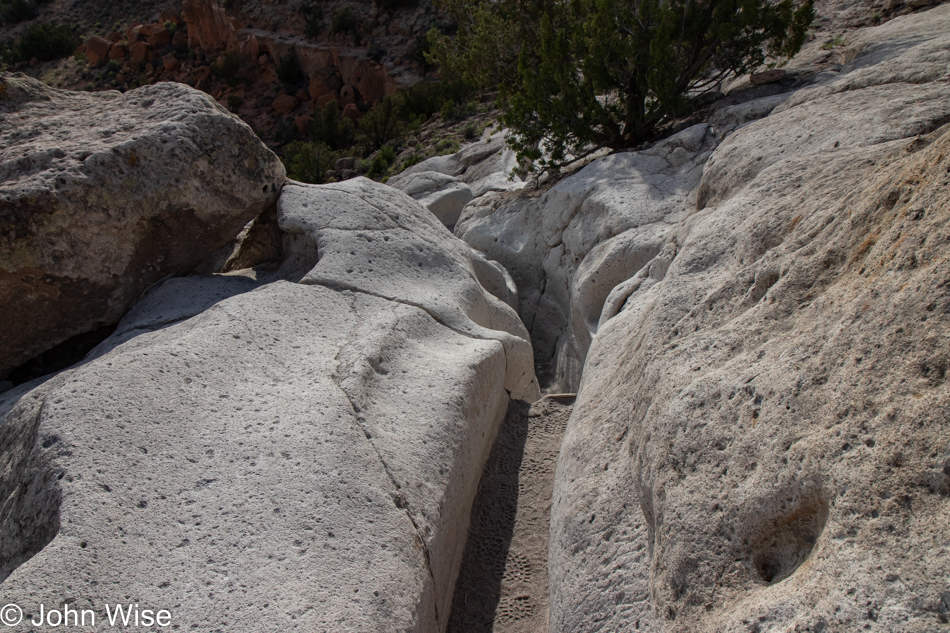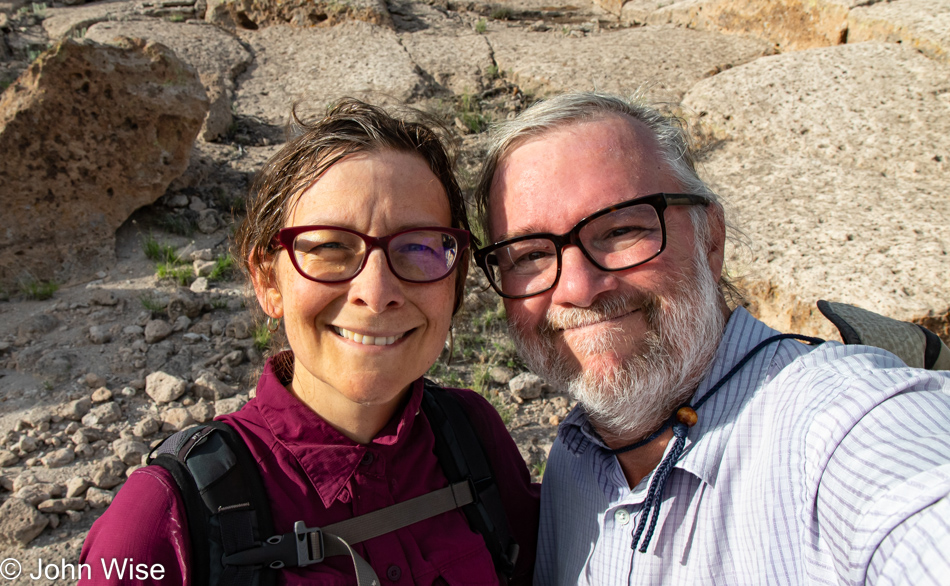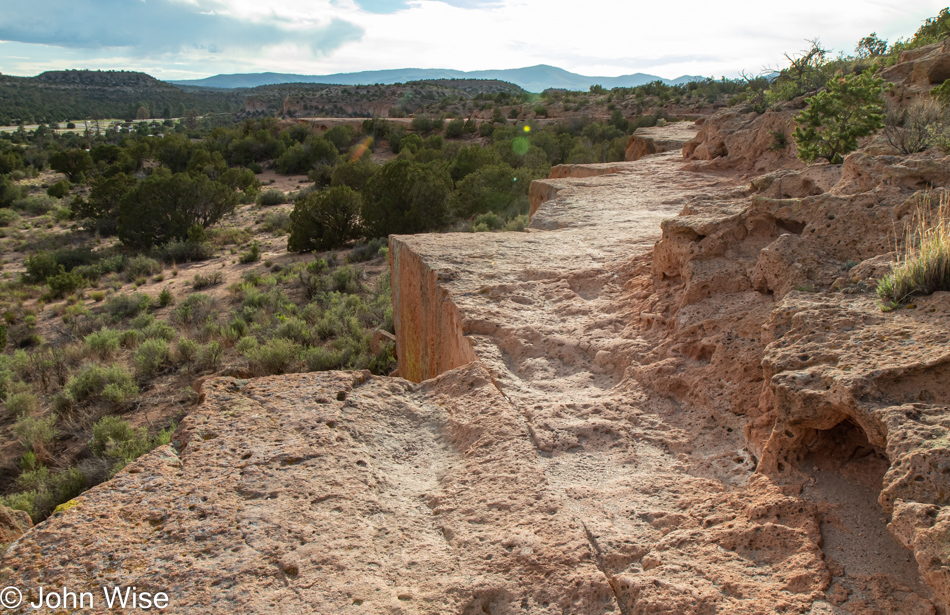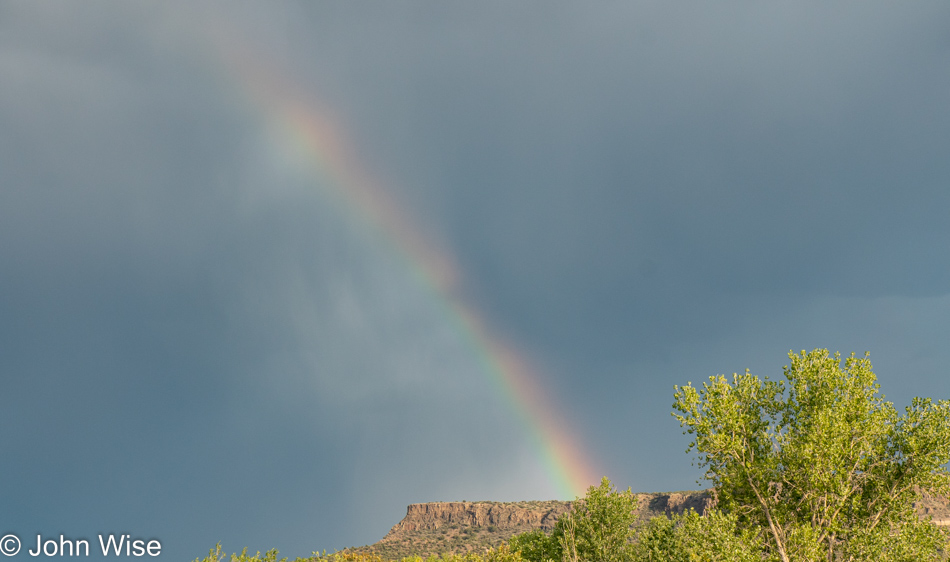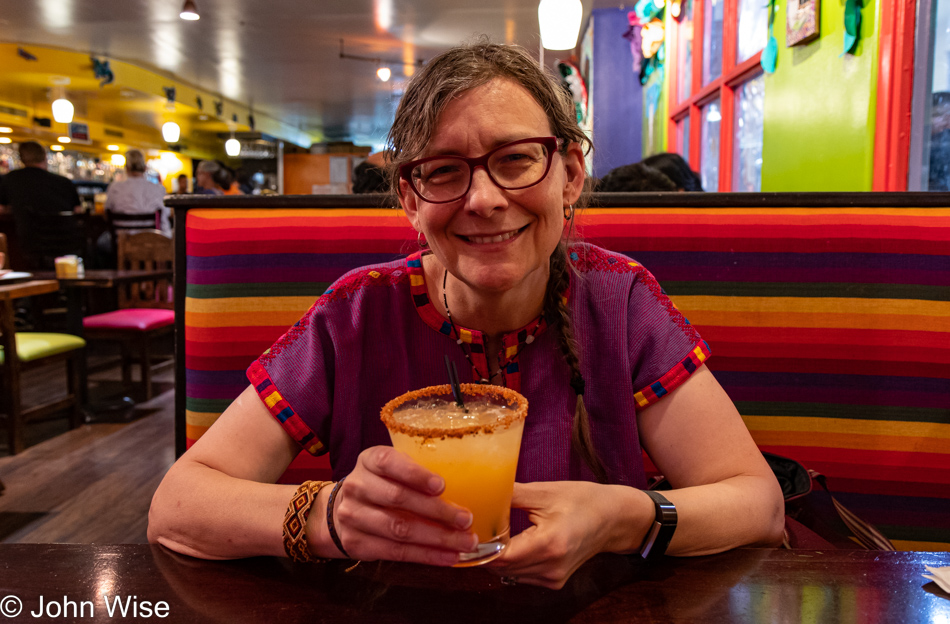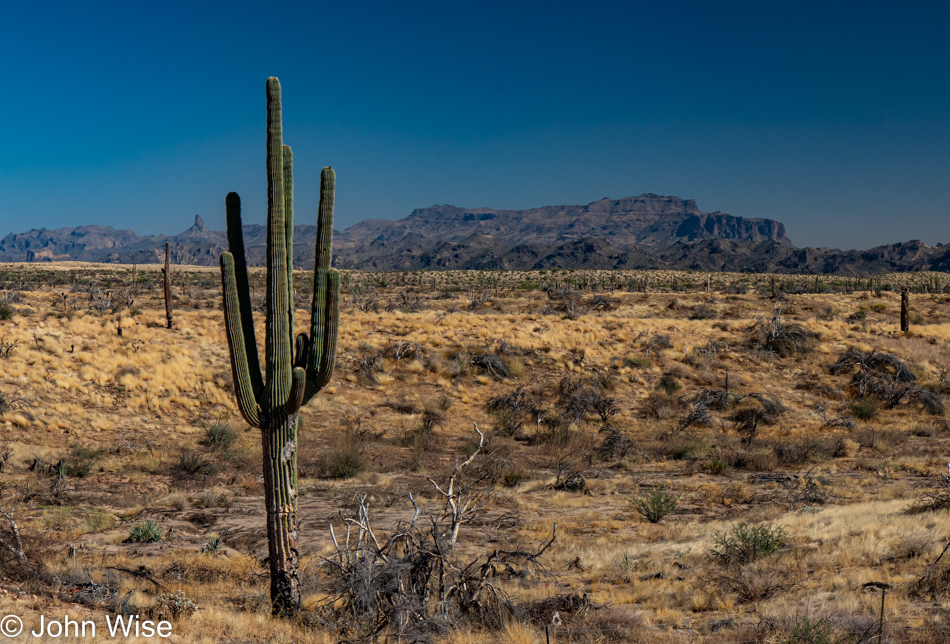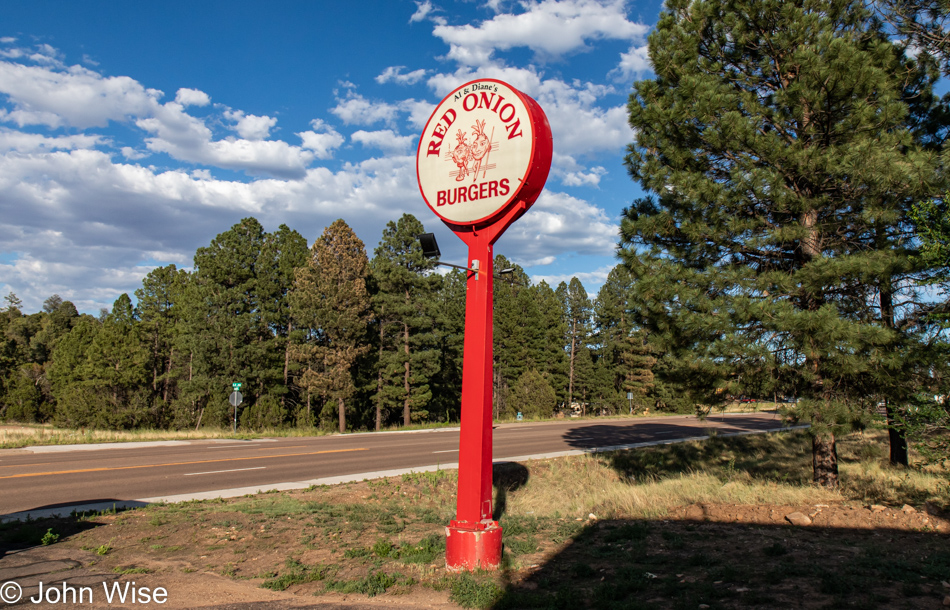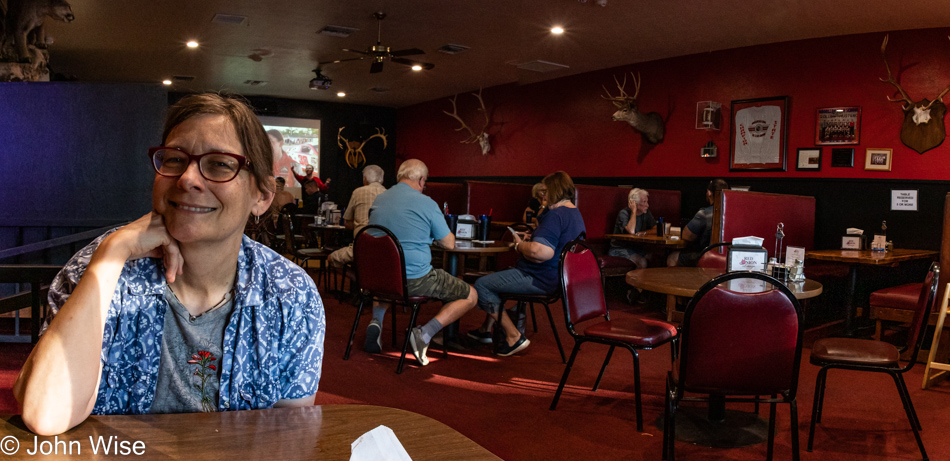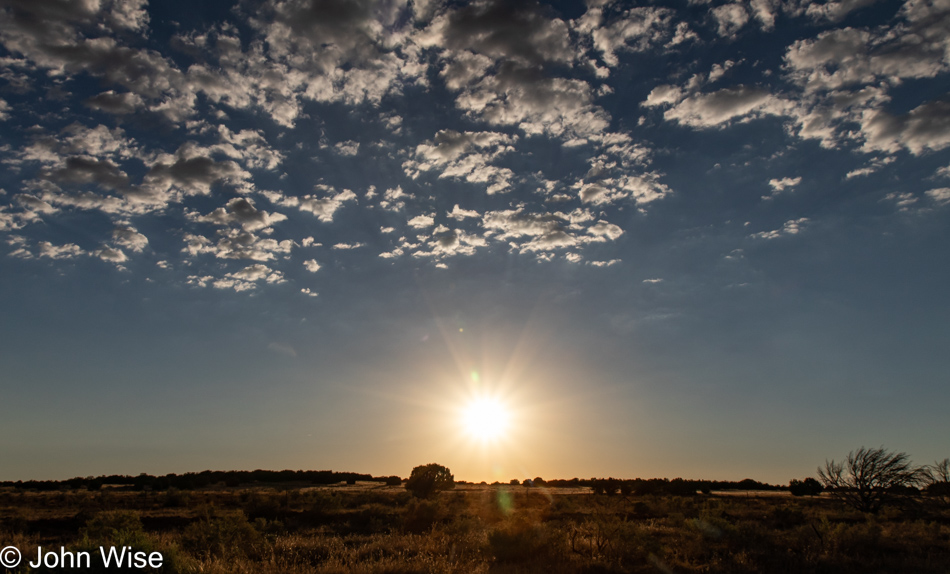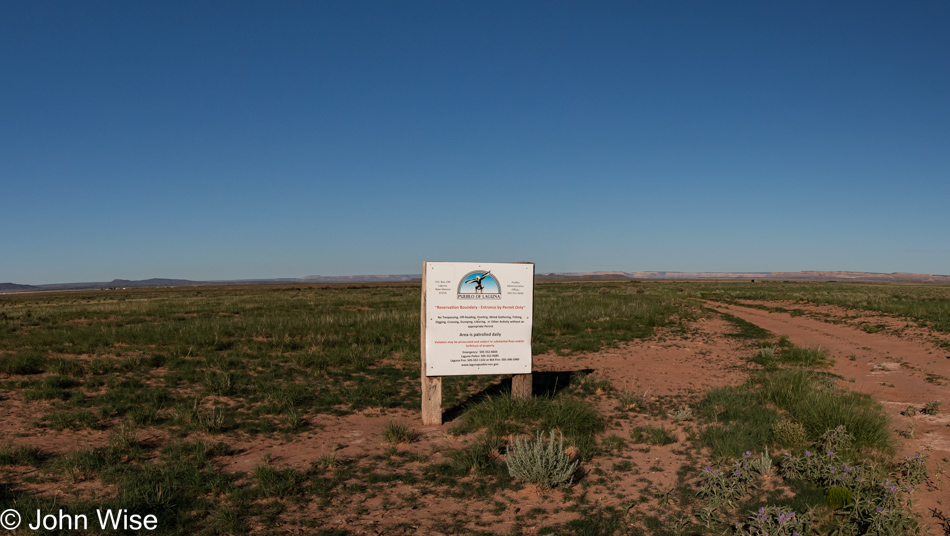
I don’t believe I’ve ever shared so many photos featuring Caroline in a single blog post; I’ve counted 16 of them below. Having stayed in Gallup, New Mexico, last night, we had a three-hour trek northeast to Santa Fe before today’s main event got underway. This random stop on the Laguna Reservation was used to break the fast and slake our growing hunger, and so it was, right here next to a sign warning us not to trespass, that we took our first meal of the day. Not another minute was wasted as we had important stuff ahead.

Parking ambiguities out of the way (which included driving 15 minutes away from Museum Hill, where the International Folk Art Market was being held after a two-year hiatus following COVID), we were on a bus heading right back to the event up on Museum Hill in Santa Fe, New Mexico. No exaggeration; I don’t believe we were here at IFAM more than five minutes before Caroline fell in love with this piece from Academia De Rebozo Mexiquense out of Tenancingo, Mexico. What appears to be a shawl is actually a rebozo and was designed by Carlos Amador Lopez Bringas, the gentleman on Caroline’s right who is also the owner of the company.

Next up was a rather pricey item Caroline felt heaps of guilt purchasing, but with only four bags at the market, it felt like this one might not last long. While she’s flat out in love with her current purse from CTTC, the Peruvian Textile Center in Cusco co-founded by Nilda Callañaupa Álvarez (more about her shortly), I felt like this one complimented Caroline’s current wardrobe and looked like nothing I’ve ever seen in Arizona. With a quick swipe of the card for nearly $500, my wife was going home with a handmade purse from the collective of craftspeople under the guidance of Gulnora Odilova from Shakhrisabz, located in southern Uzbekistan. The young lady posing with Caroline is Sugdiyona Omonova.
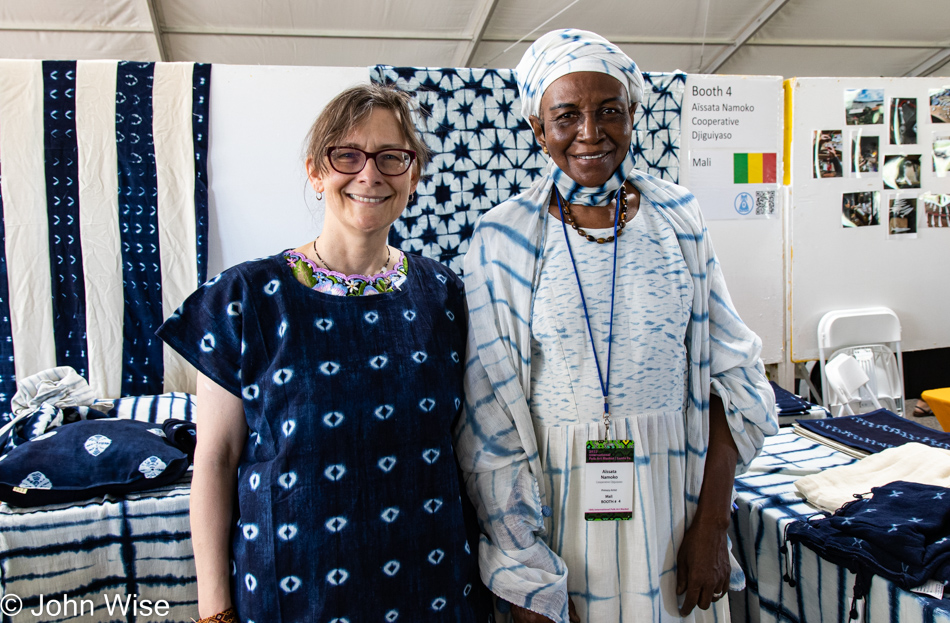
Indigo might have been Caroline’s middle name in a former life because she certainly has something for this deep blue hue. I’ve never seen her able to pass clothes dyed using this plant that apparently was first used about 6,000 years ago in Huaca Prieta, Peru. Standing next to Caroline and her new blouse is Aïssata Namoko from Mali. She is the soul behind Coopérative Djiguiyaso, offering textiles inspired by ancient Dogon tie-dye patterns from her home country.

Sadly, we are rushing through here as we purchased a pass that is for a timed entry lasting but three hours. The pass doesn’t expire per se, with authorities seeking to remove us from the grounds, but we are also trying to be considerate of the conditions that were set in order for this year’s IFAM to take place. Back when I made the reservations, I bought entry for both Friday and Saturday in case our few hours here on Friday were not enough. So, on one hand, as we fly through, we are content that tomorrow, we can return bright and early.
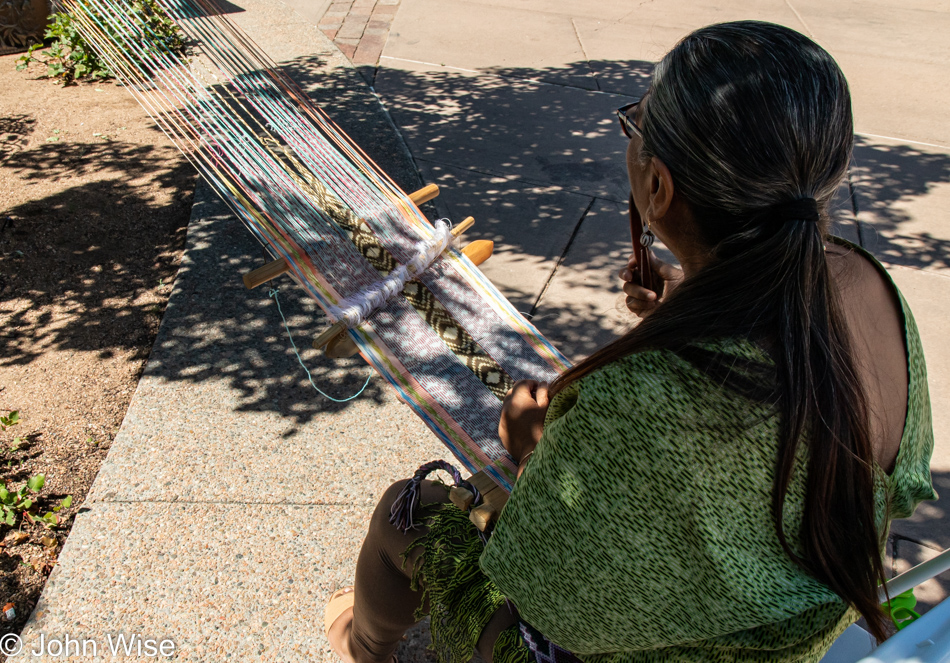
Of course, our return must be premised on the idea that we’ll still have money to buy other things, but at least for now, the frenzy has subsided. As first-time visitors, we had no real idea of what to expect, and the conditions of our entry were not encouraging to make a day of the festivities. Should we ever return, we’ll know better. What I’m referring to are the relatively poor food options that have a feeling of being from the county fair, meh. There were a couple of vendors with ethnic offerings, but instead of best representing the diversity of craftspeople on hand for authenticity, it felt to me as though things were aimed at a bunch of boring, somewhat wealthy old people who lack a certain something for culinary experimentation.
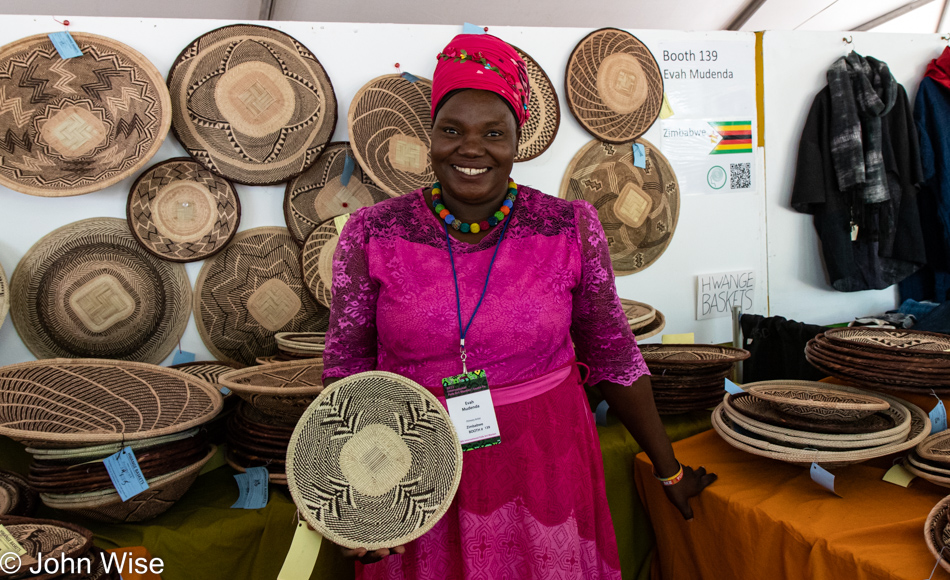
There was also a stage featuring live performances, but we didn’t check the schedule or give it a second glance as we had 164 vendors to familiarize ourselves with. And if we thought we’d just glide by some, people like Evah Mudenda of Ilala Palm Baskets from Zimbabwe dragged us in and wanted to show us her wares. Again and tragically, we didn’t feel comfortable stopping everywhere due to this time-restricted visit. Ultimately, we did learn that those restrictions would in no way be enforced, but leaving Phoenix with these ideas, we’d made plans for a timed entry for a different event this afternoon that I’ll be sharing just below.

Peru seems well represented today; this is the stall of Olinda Silvano Inuma de Arias, who is sharing designs known as Kené, an ancient art representing nature and the living culture of the Shipibo-Konibo people of the lower Amazon.

Caroline’s attention perked right up when she immediately recognized the bag and weaving style seen here; these are the makers of the purse she’s been carrying for years now. As she’s admiring the goods, she proudly pulls her bag forward, and a woman looks at it understanding right away its provenance. Sheepishly, Caroline points out that it needs repairs and that she should have already dealt with it, but the woman tells her to hand it to her, and she’ll repair it right here. A bit embarrassed, reluctant even, Caroline lets it go, and the woman takes off her felt hat to pull a needle from under the brim, just in case something like this should present itself, right? In a minute, the loose threads are sewn back in, and other than needing a good dry-cleaning, Caroline’s hand-woven purse is in better shape than when we arrived.
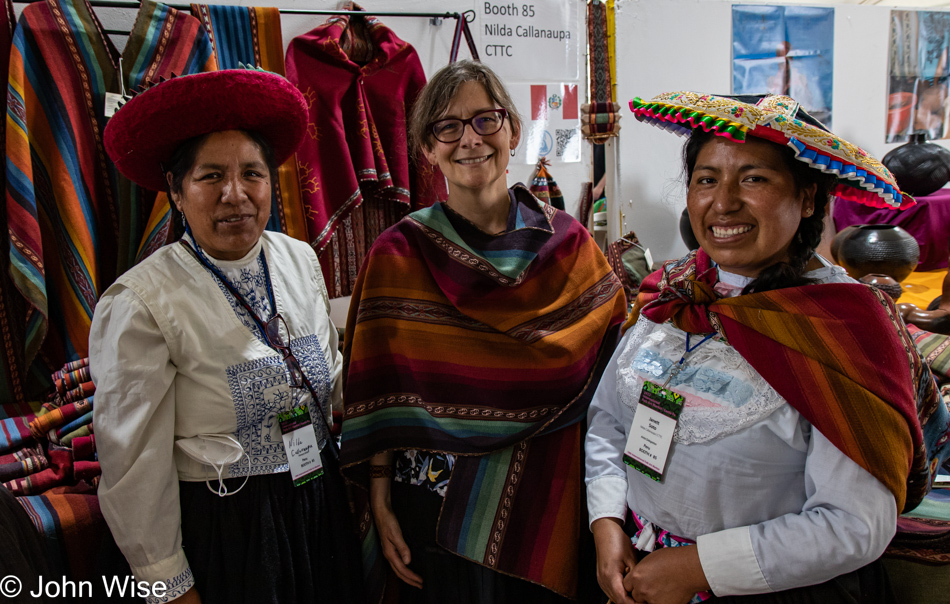
Caroline is gushing about the work of this collective known as Centro De Textiles Tradicionales Del Cusco of Peru. She’s pawing ponchos, blankets, and various textiles and is obviously so enamored with their work that I know we’ll be leaving with something from these ladies. It seems it’s the poncho, but the design of the blanket is so beautiful, too… But the poncho is so much more practical, so it’s settled, or is it? Go with the first thing that really grabbed you, which was actually a purse, though she didn’t like the zipper, so it was the poncho. After paying for it, I asked the ladies if we could get a photo with them so we could capture the moment and subsequently share these things here on my blog; they obliged us, obviously. As we are saying our goodbyes and thanks, someone else walks up asking for Nilda, the woman with the felt hat that fixed Caroline’s purse was pointed to. Oh yeah, her badge says just that. My wife had an emotional celebrity/mentor moment as she was dumbstruck that it was actually Nilda Callañaupa Álvarez herself whose hands did the work on her bag and is responsible for bringing the women’s work of Peru’s weavers to the attention of the world.

And with that, it was time for us to catch the shuttle back to our car so we could make our next appointment. Good thing we’ll be back tomorrow at 9:00 as this was certainly far too rushed. I should mention that there are four individual museums here that will all have to wait for a subsequent visit for us to spend time in.

Meow, is anyone home here at this bowling alley turned something altogether different?

We have entered the peculiar world of the Meow Wolf, knowing nearly nothing of what to expect for our $45-per-person price of admission. I’ve heard great word-of-mouth reports and wild enthusiasm from those who know of it; even Caroline’s boss highly recommended it, but come on $45? This better be great.

While this wasn’t for me, Caroline jumped right in, donning the protective gloves to hunt through these uranium glass pellets, looking for a specific one that is supposed to be glowing at 553 nanometers and that, if found, can be used to open a secret passage but you only have one chance. Sadly, her myopia didn’t allow her to pick the right one, even with my loud encouragement telling her exactly where it was. The time limit is in place so players don’t suffer from radiation burns.

This fossil mammoth skull was found in the Ural Mountains near Mount Narodnaya in the Khanty–Mansi Autonomous Okrug of Tyumen Oblast, Russia, only 0.5 km to the east of the border of the Komi Republic. During the Soviet era, scientists discovered that the extinct ice-age herbivores of the area had been eating grasses that only grew over deposits of uranium, which was how they discovered the material Russia was to use in the nuclear weapons. This rare luminous fossil, now part of Meow Wolf, is of significance for solving the puzzle that has been wittily crafted here.
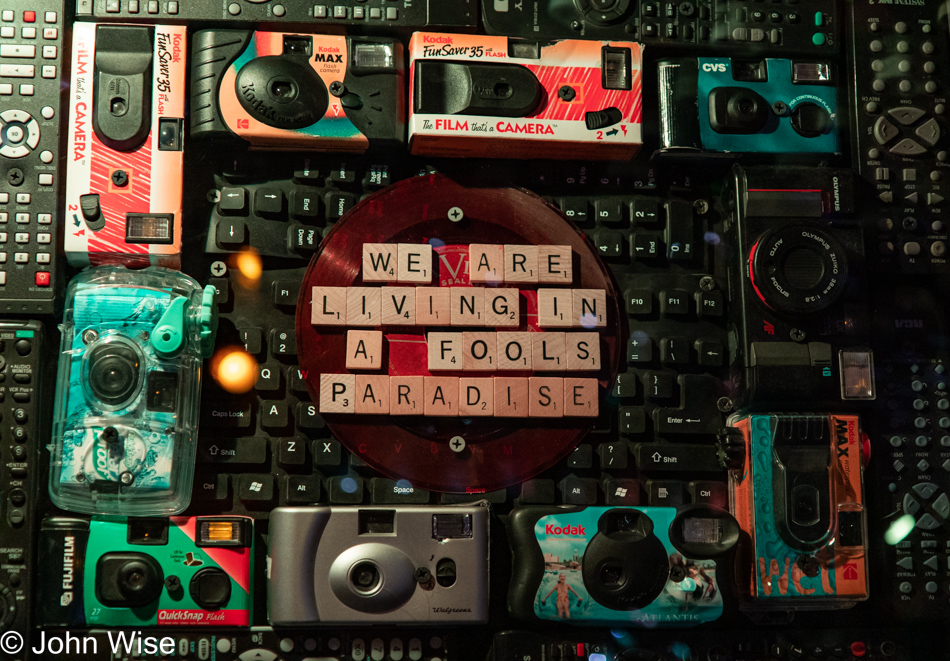
How is anyone supposed to figure these things out? The value of the Scrabble letters is 40; when you hold up four fingers on your left hand and make a zero with your right in front of the gray camera, the flash will blink a Morse code message that you need to get to the next clue. Seriously, Meow Wolf?
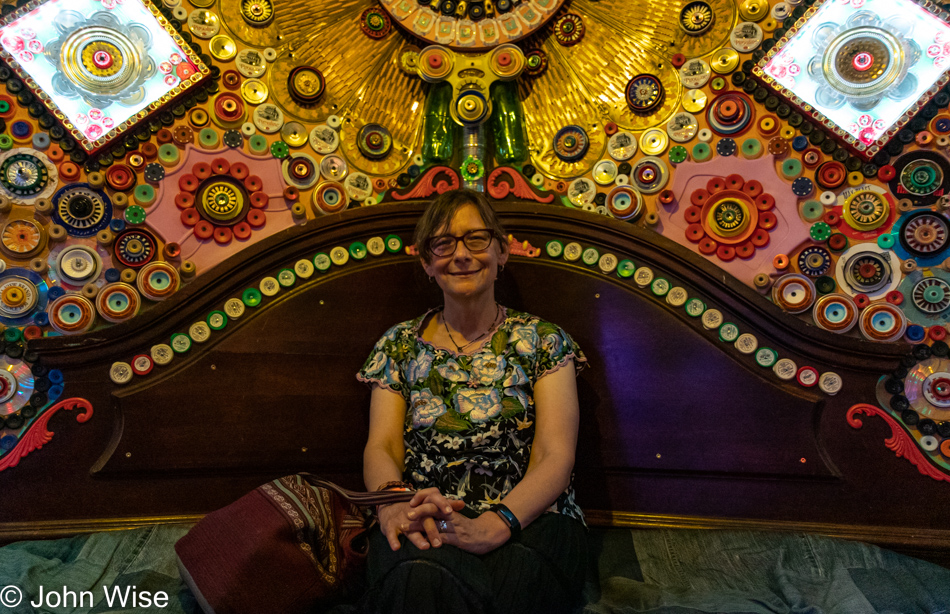
Obviously, we figured it out because Caroline’s sitting on this bench.
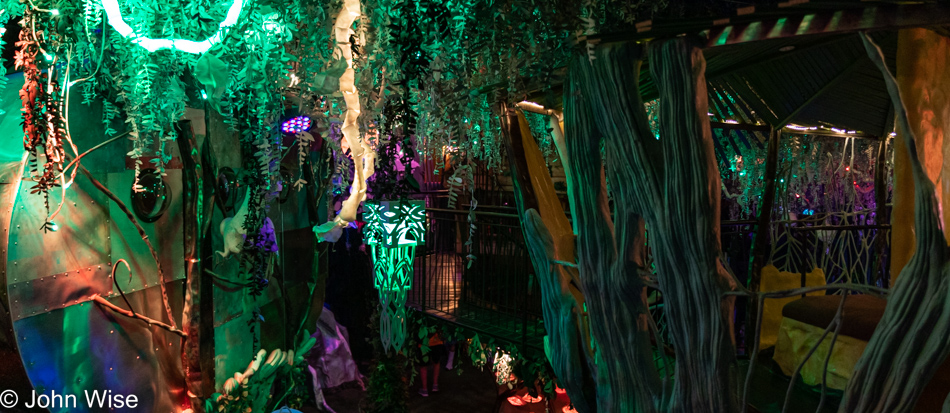
We interviewed nearly a dozen people passing by here trying to figure out how to swing from one of the vines to a balcony that will appear once enough weight is hanging from the vine, but I’m 59 years old and not sure I have the upper body strength to attempt Tarzan moves without a safety net so we skipped this part.

Damnit, Caroline, you’ll get E. coli poisoning or COVID trying this chicken that’s been sitting there for how long and touched or licked by how many others before you?
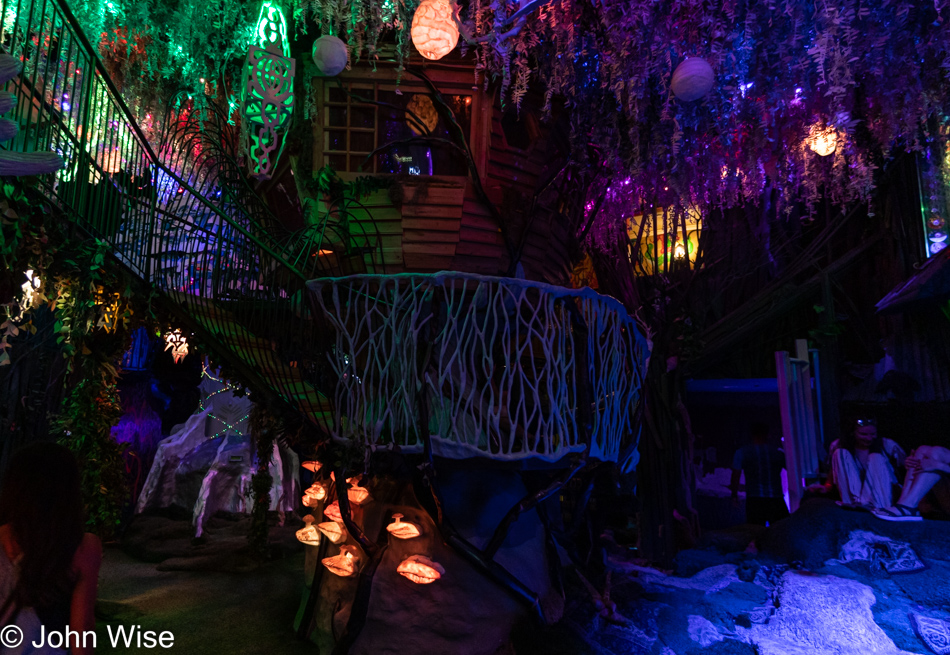
We stood here for close to 45 minutes while the acid had us peaking, and the entire scene was a dripping puddle of multi-colored flowing lines and throbbing fluorescence.
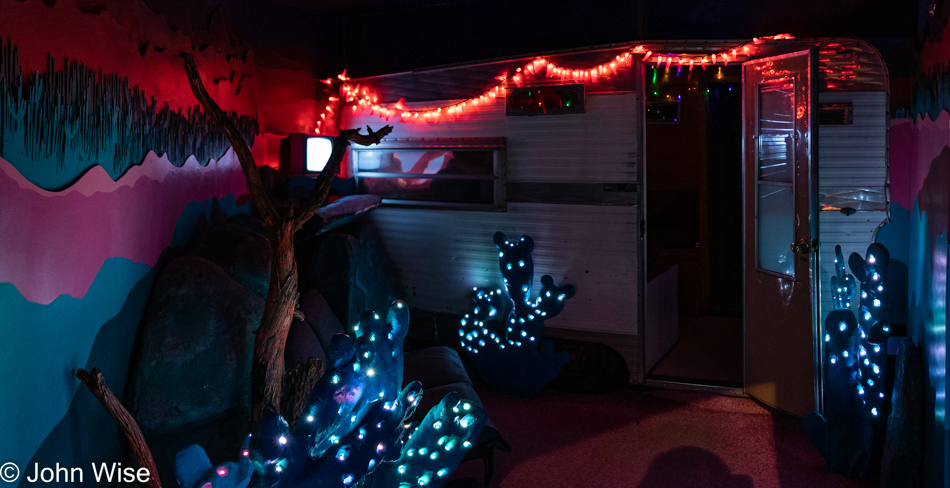
Be sure you know what you’re doing because once you’ve entered one door, the dimension on the other side may not allow you to pass through from whence you came; we learned this the hard way. Beware the camper.

I told you, portals don’t always go well.
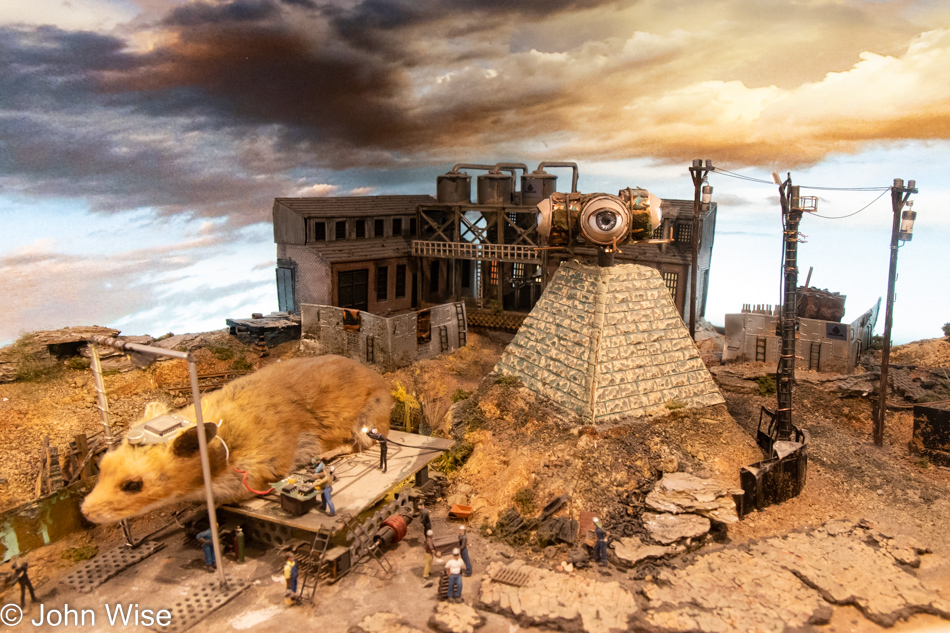
I can’t tell you with any certainty that the telepathic intrusion I believe was real actually came from this rat that told me that this construct right here is the brain and utility that operates this entire facility and that with this knowledge I was given means that the co-founder of Meow Wolf Matt King was going to have to die the following day. Sure enough, Mr. King passed away on July 9th, the day after our visit; he was only 37 years old.
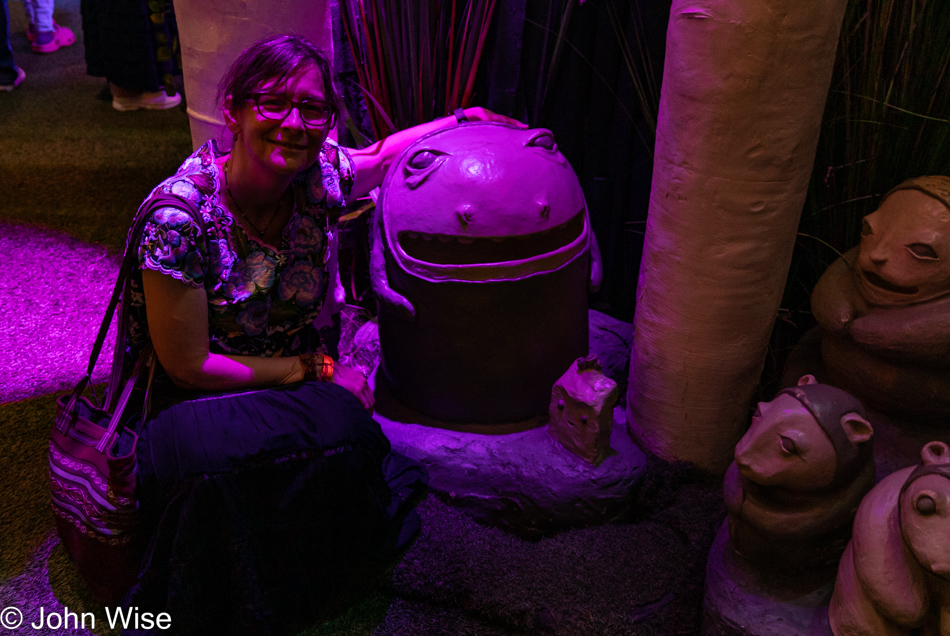
While I was mind-melding with a rat, Caroline claims she emerged from this lavender creature that belched her out like a whale spitting out kayakers. As she tells it, after walking through the camper, her path took her into the entrails of a moist tunnel of peculiar humming and singing that appeared to emanate from a rodent-like thing until she found herself here hugging this frog thing or whatever it was.
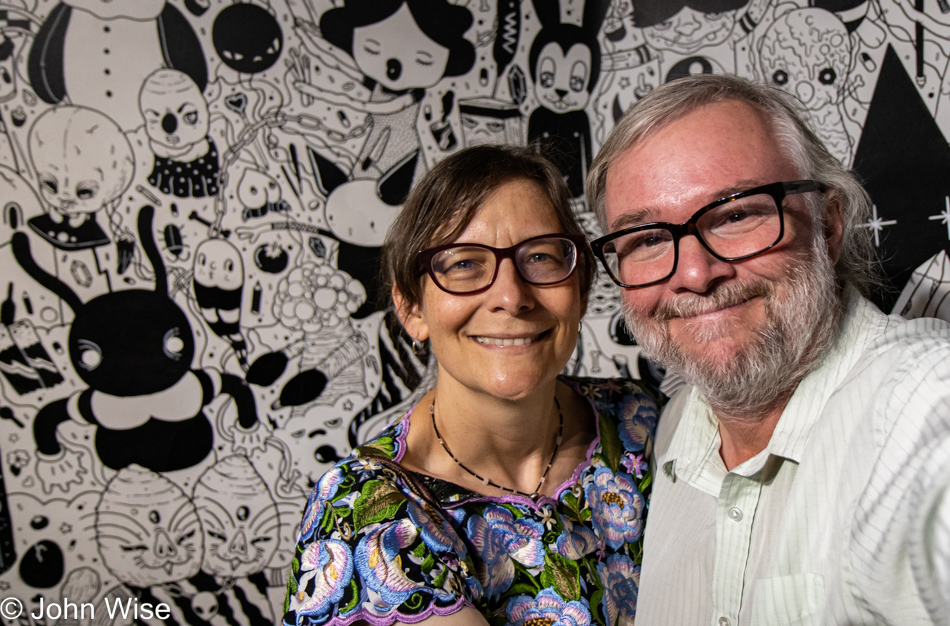
In the viewfinder of our Instamatic camera, we were black and white, and the background was colorful. This place is working on some kind of magic level that is nothing short of baffling.

That thing could beg all it wanted to; we were not going to crawl into its hole.

The payoff for enduring the blistering hot rays was that by waving your hands and arms; you were able to play this ethereal music. Maybe they should warn visitors not to try playing this invisible instrument with their eyes before they enter.
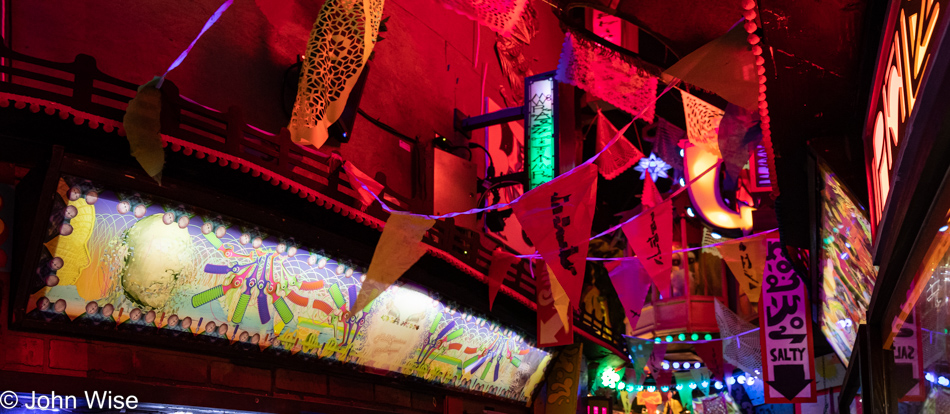
By now, we are growing bored; just look at how meaningless this is.
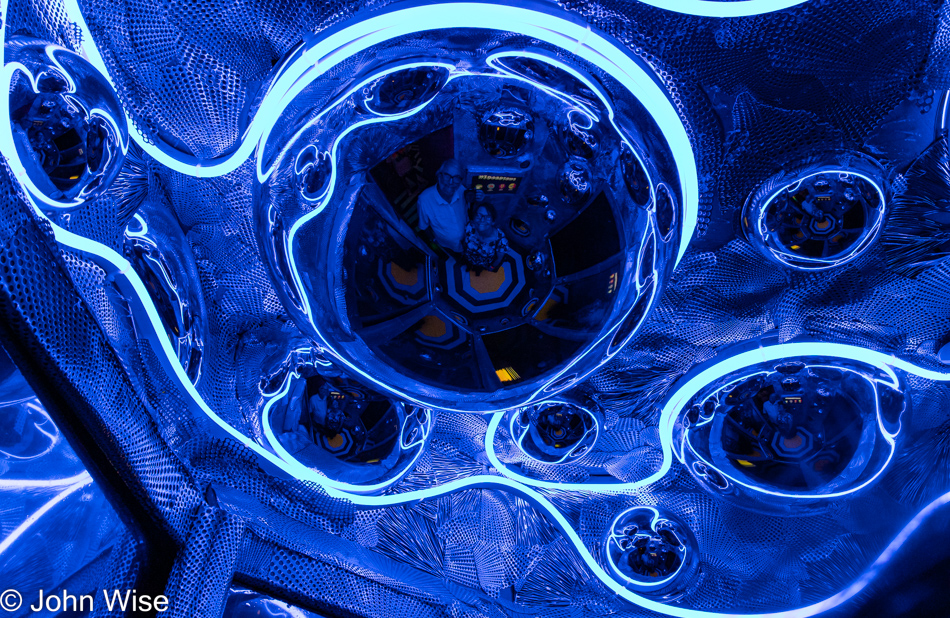
I lied; one cannot be bored after being turned into a blue midget Oompa Loompa. How’d they do that?

No, we won’t enter your holes either.
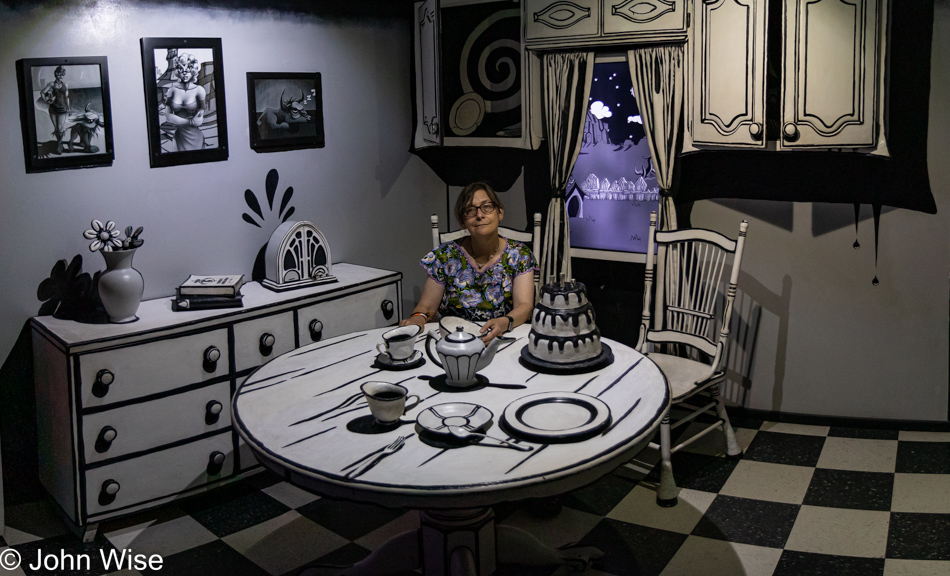
Did you forget to look in the teapot, the cupboard, or under the table?
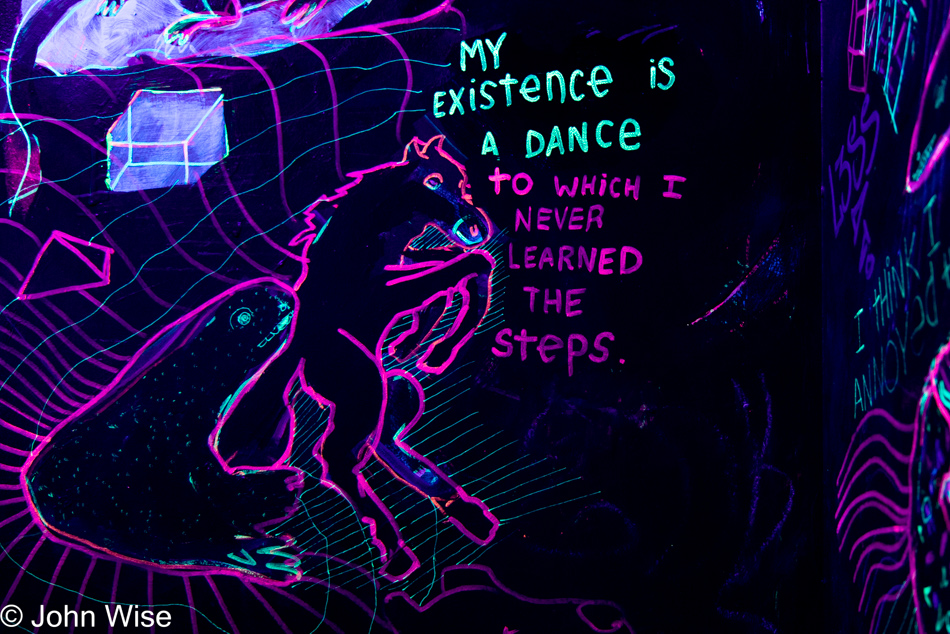
Truth.

If you are not precisely 5 foot 6 and 1/4th inches tall (168.275 centimeters), you will not see the optical illusion here. This photo that does not represent what one would see at the right height was only allowed to be shared on the condition that I don’t post the truth.
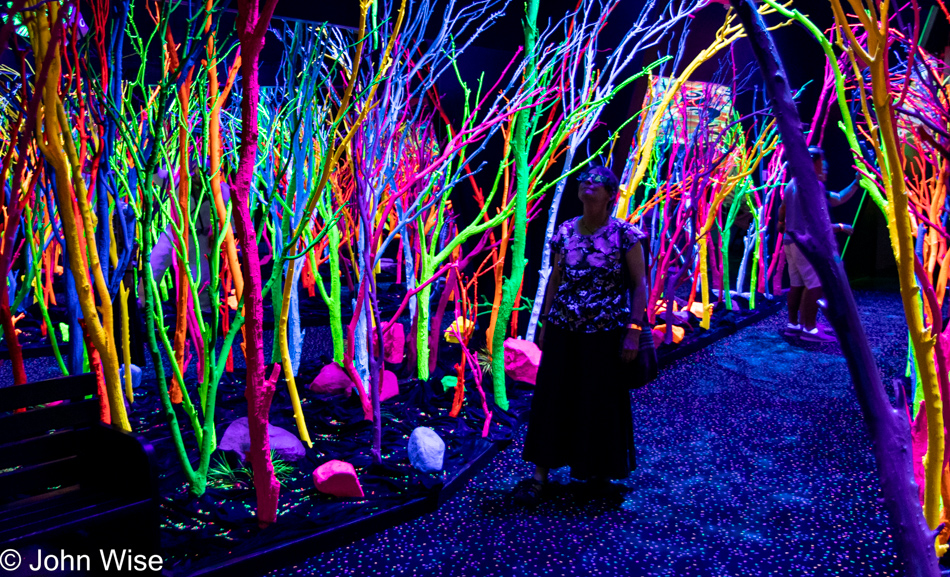
Lost in the forest of dendrites that press out of the mind of earth, or was this another one of those moments where my camera captured the hallucination brought on by the mushroom/acid cocktail we tossed back an hour ago?

This is a holographic projection sampled using an X-ray technique that allows for the visualization of the inside of your lower intestine, sphincter, and, in this case, Caroline’s collection of hemorrhoids. Yep, that’s what it looks like up my wife’s butt.
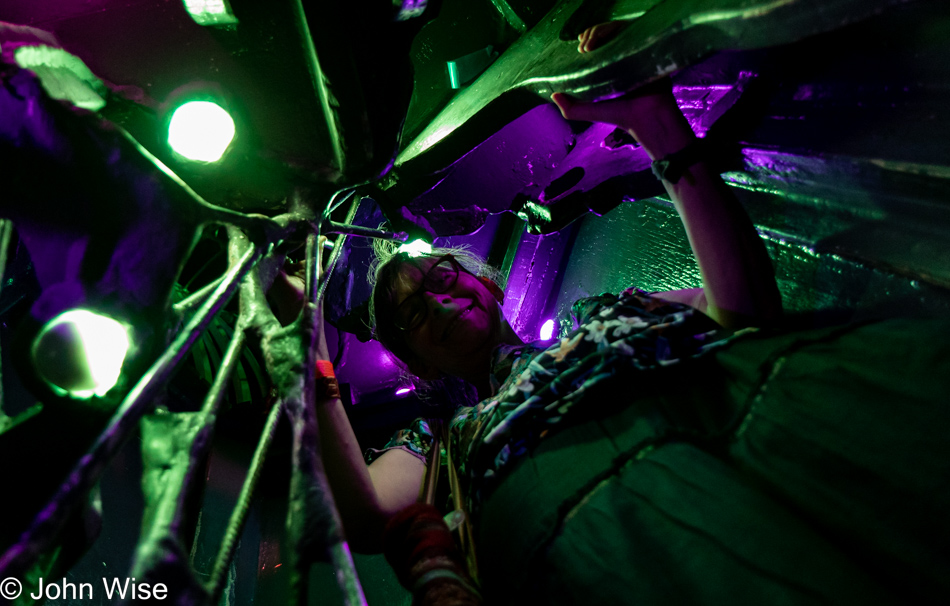
Who is laughing now, wife?
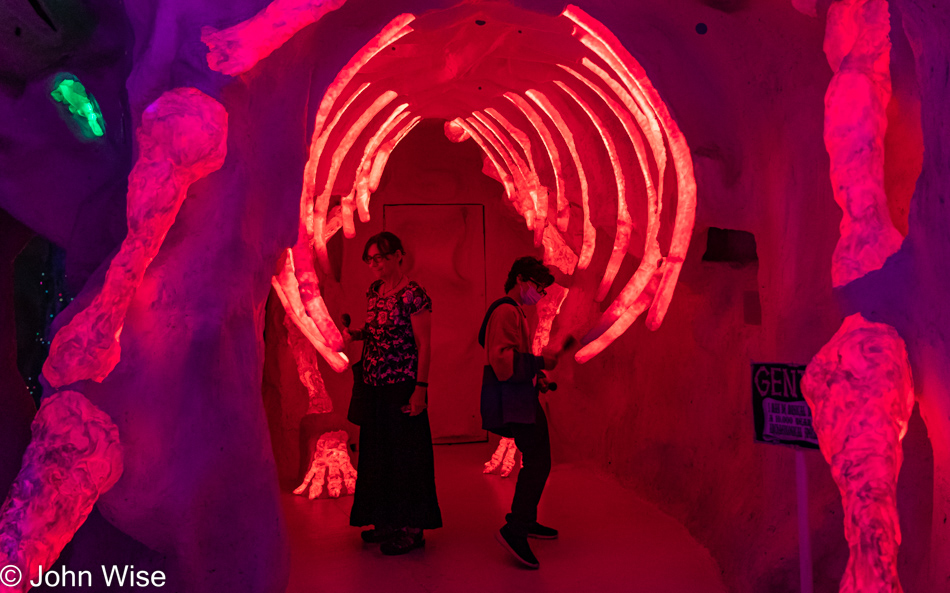
It’s not every day one is offered the opportunity to play the ribcage of a glowing monster, but when it does happen, you must be at Meow Wolf.
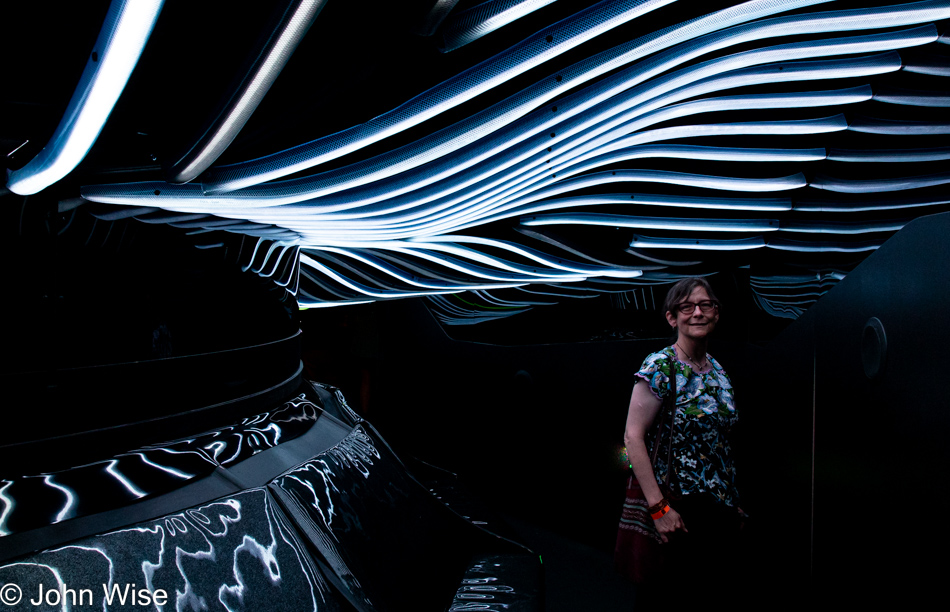
We’ve entered the teleportation vehicle with its quantum wave flux elliptical centrifuge that will spit us back out into reality as; apparently, we were not tasty enough to forever remain in the belly of this former bowling alley. Fine, we certainly got our $45 of value and are ready for some fresh air and maybe food.
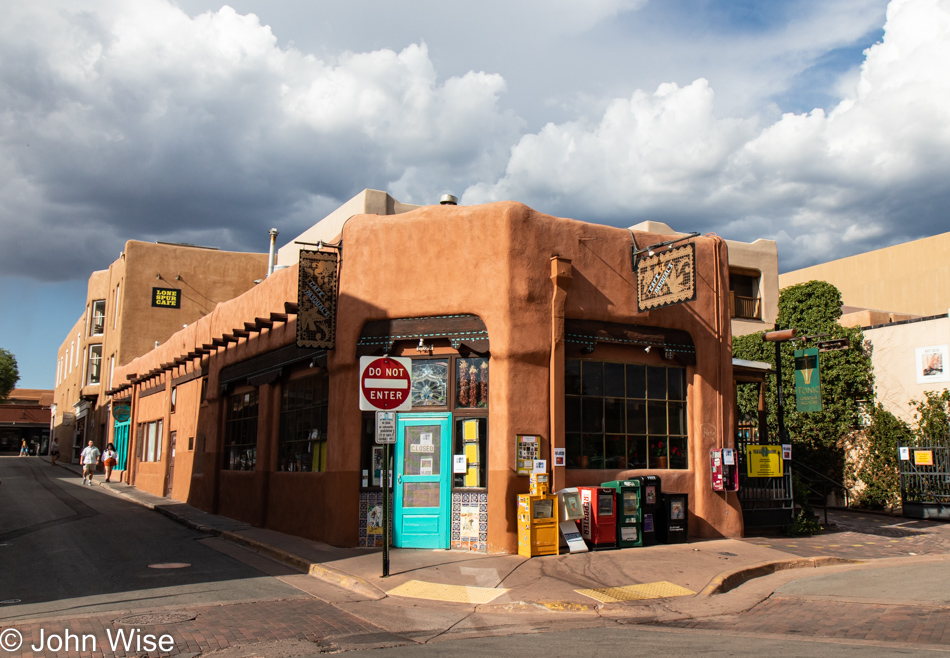
This, unfortunately, placed sign might be good for traffic, but the sense of admonishment it shouts at us not to enter Cafe Pasqual’s New Mexican restaurant is going to have to be ignored. Our reservation at the community table was for the second they opened. We’ve lost track of how many visits we’ve made to this Santa Fe landmark, and once again, we’ll leave satisfied.
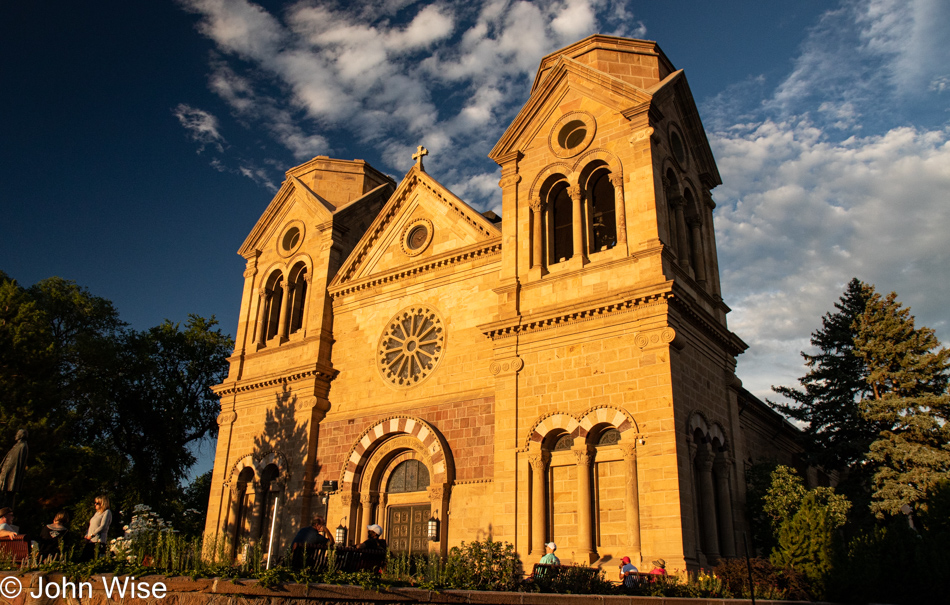
Did we get stuffed? Is the Pope Catholic? Does he shit in the woods? Only if he’s hanging out at Meow Wolf I suppose, though who really knows? Anyway, I’m not here to talk about the bowel movements of the holy pontiff; we are out for a walk under the setting sun, trying to work off some of the gorging we inadvertently did.

Oh, look, pretty flowers.

Santa Fe is nothing if not a city of art. We are in front of Keen Contemporary, where our friend Dion Terry has pieces on display and for sale. Unfortunately, they were closed during our visit, but at least we could spot one of his works there just right of center, the bird in a white frame.

Why isn’t this stuff in Meow Wolf?
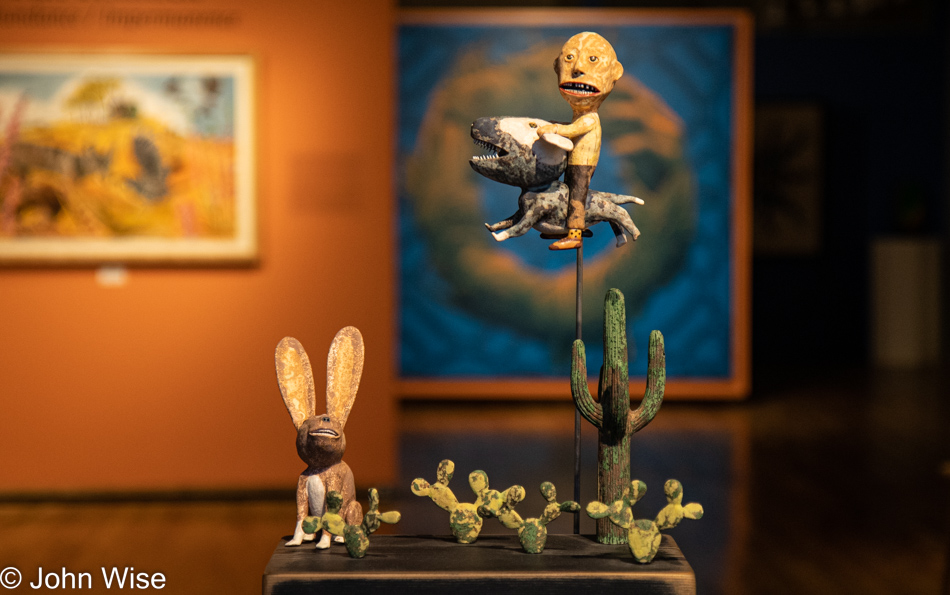
Art would be the only reason Caroline and I should have purchased a large house, so we could fill every corner with groovy things that would make us smile as we discovered other things in corners we’d forgotten we bought.
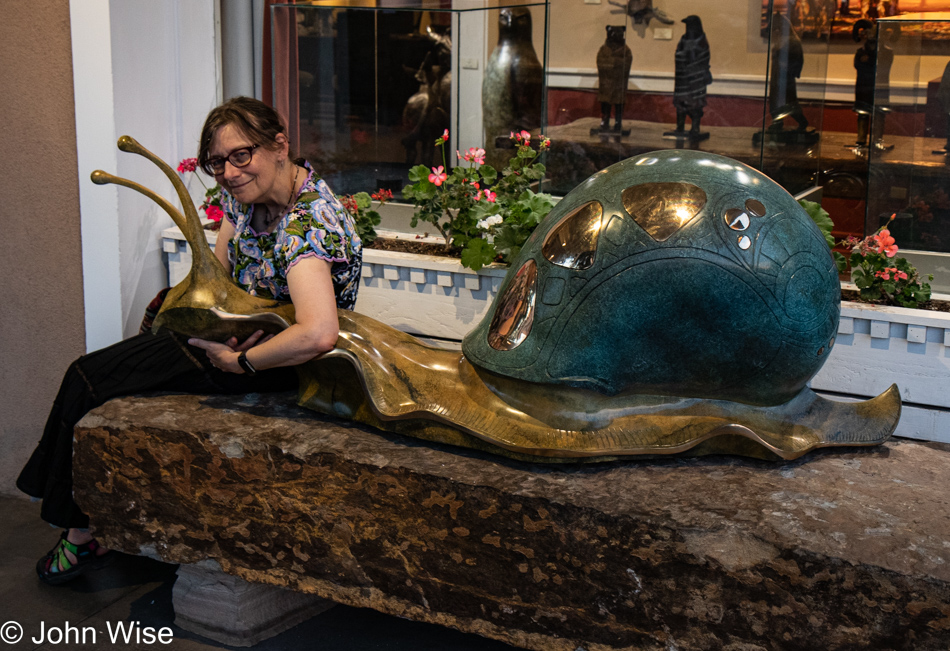
Does this look like something people who stay at Motel 6 would buy? Well, we are staying over at that $70-a-night place, and I swear that if this giant snail fit in our apartment, we’d so take it home with us, price be damned.
